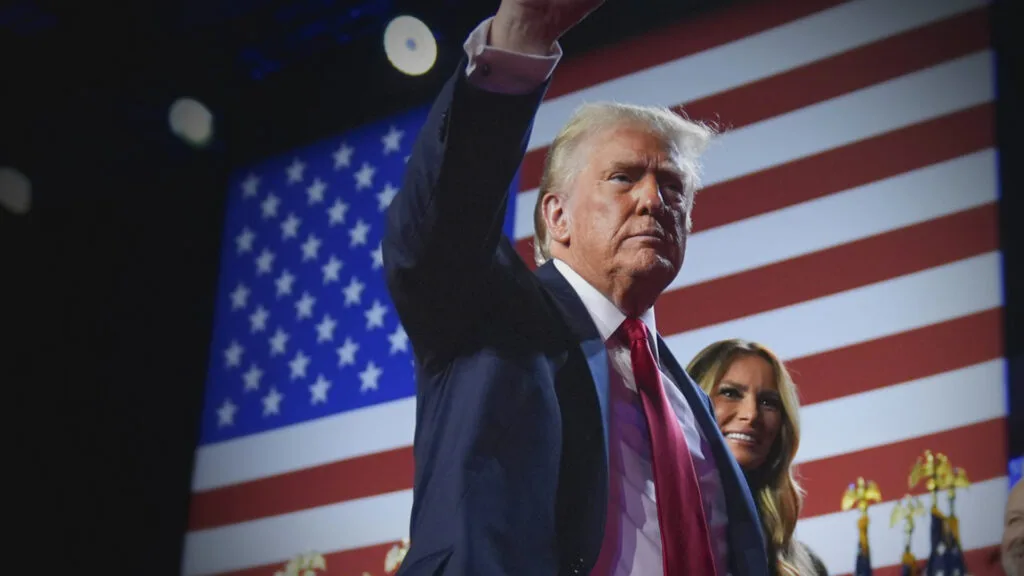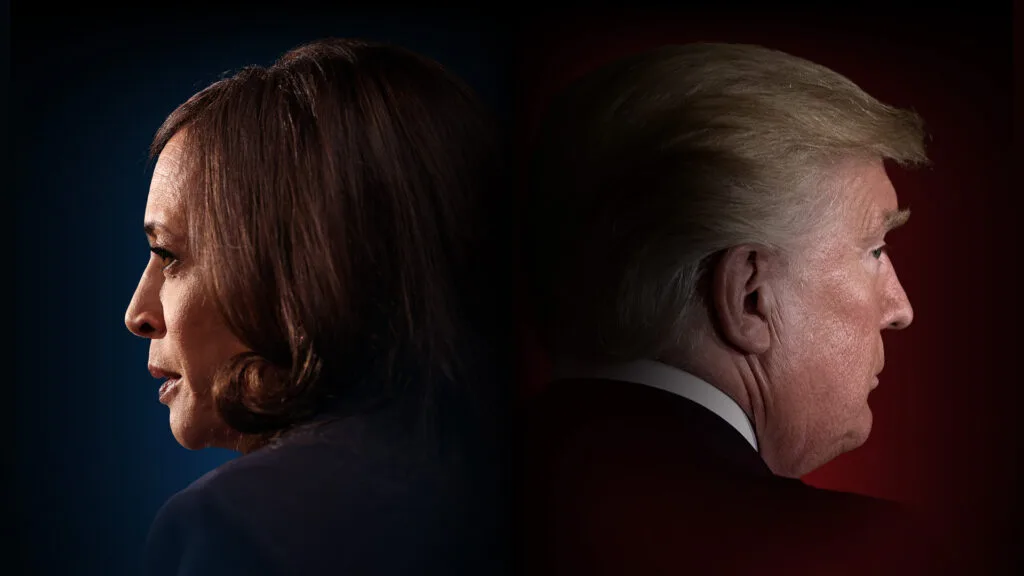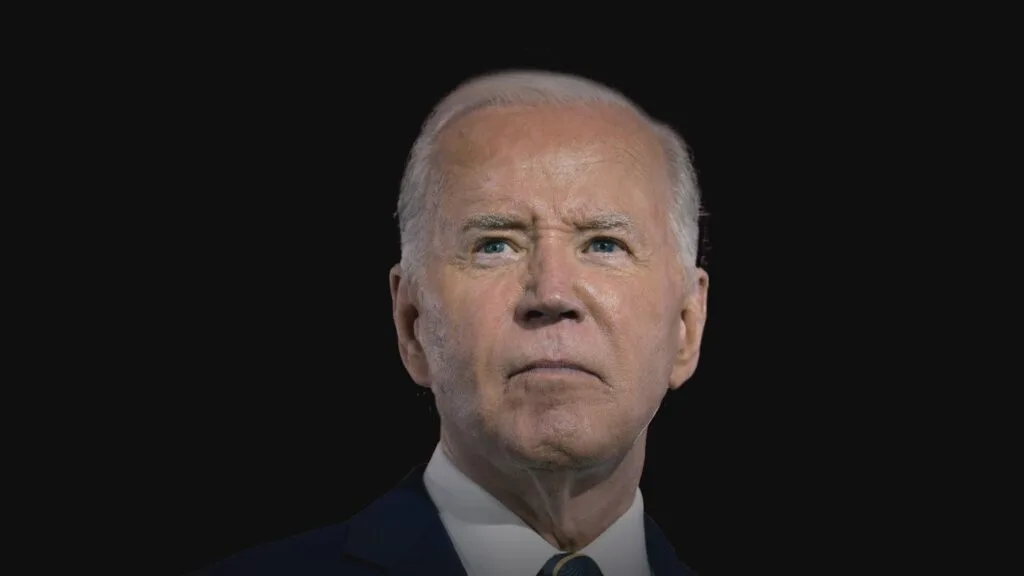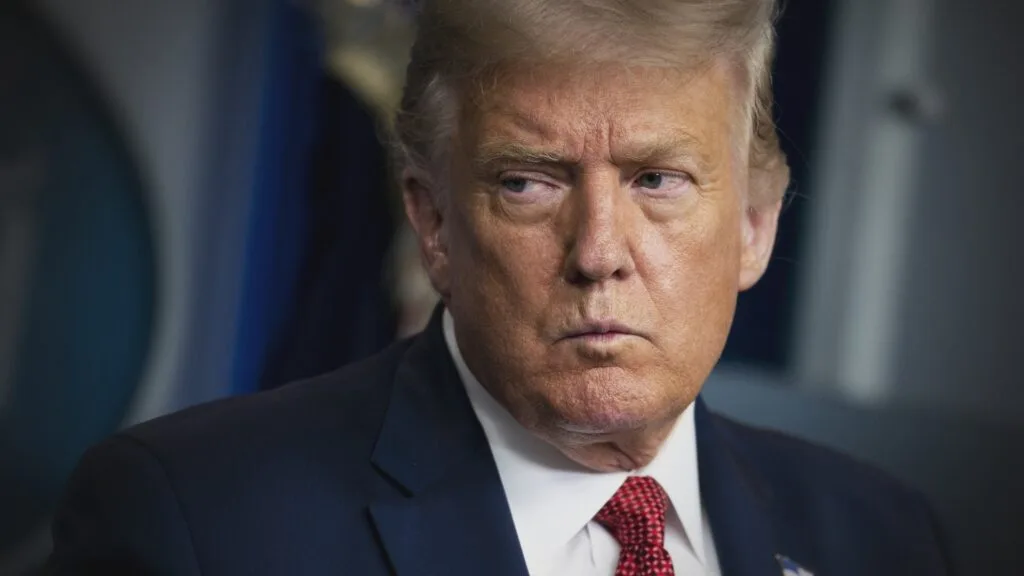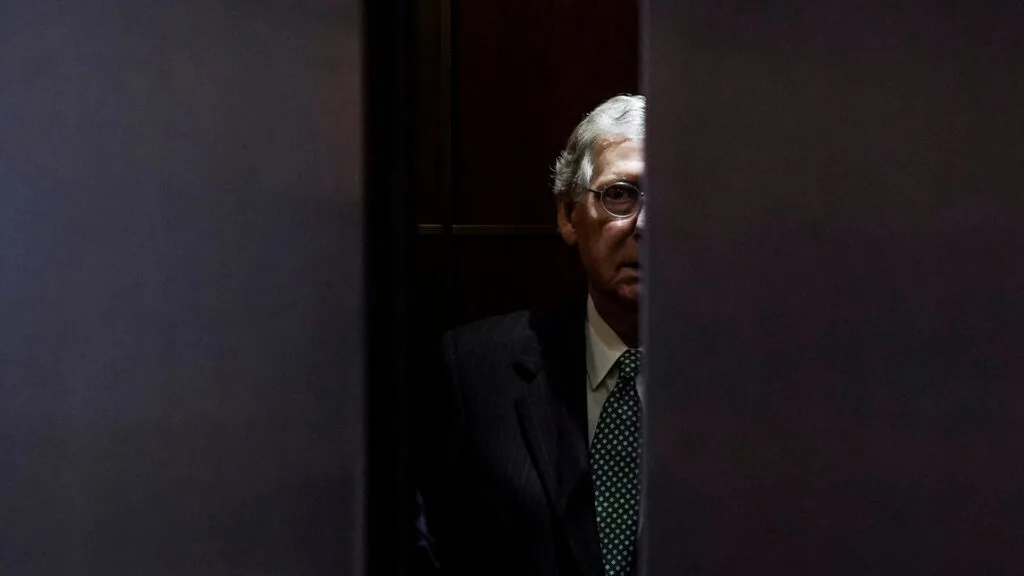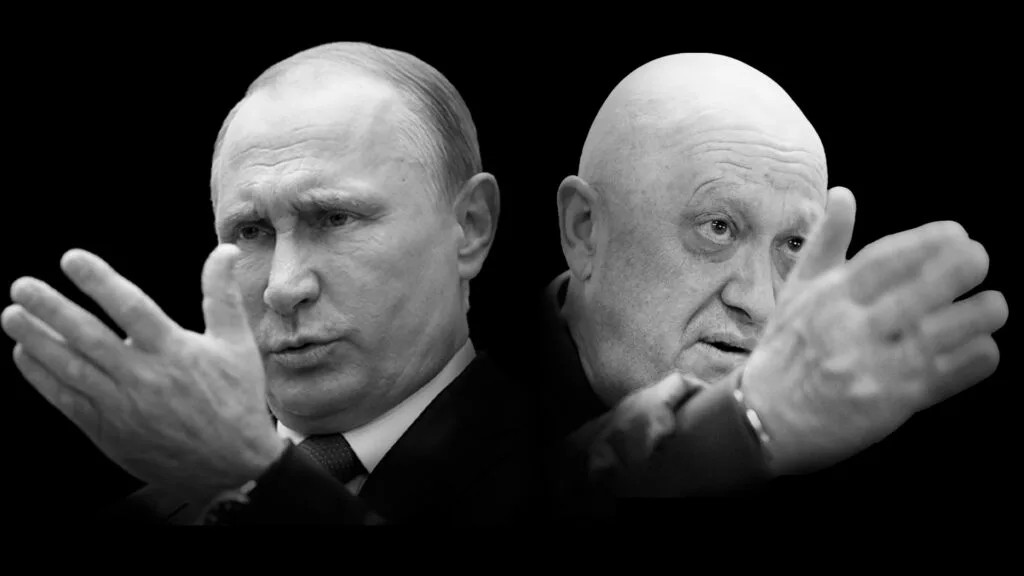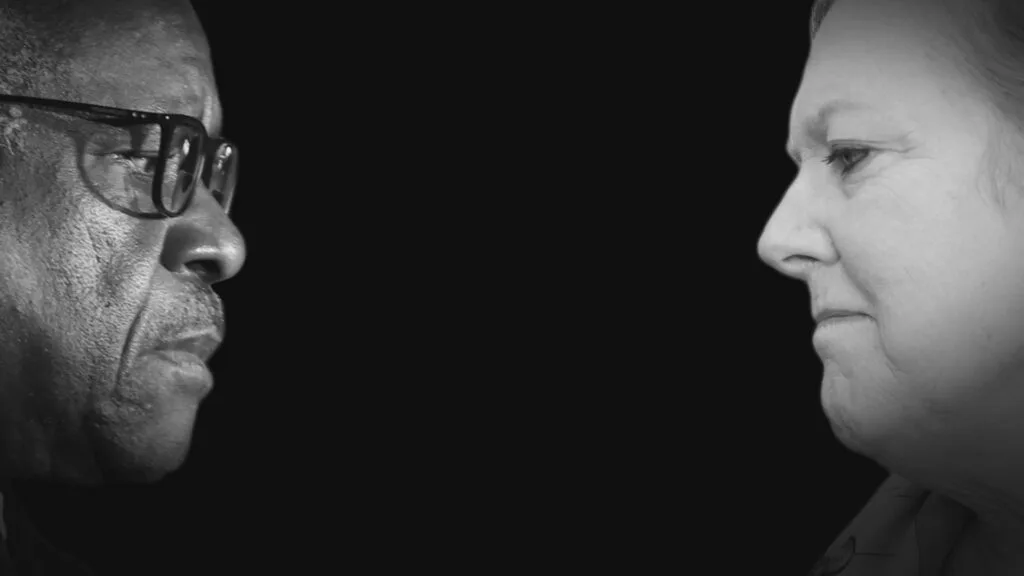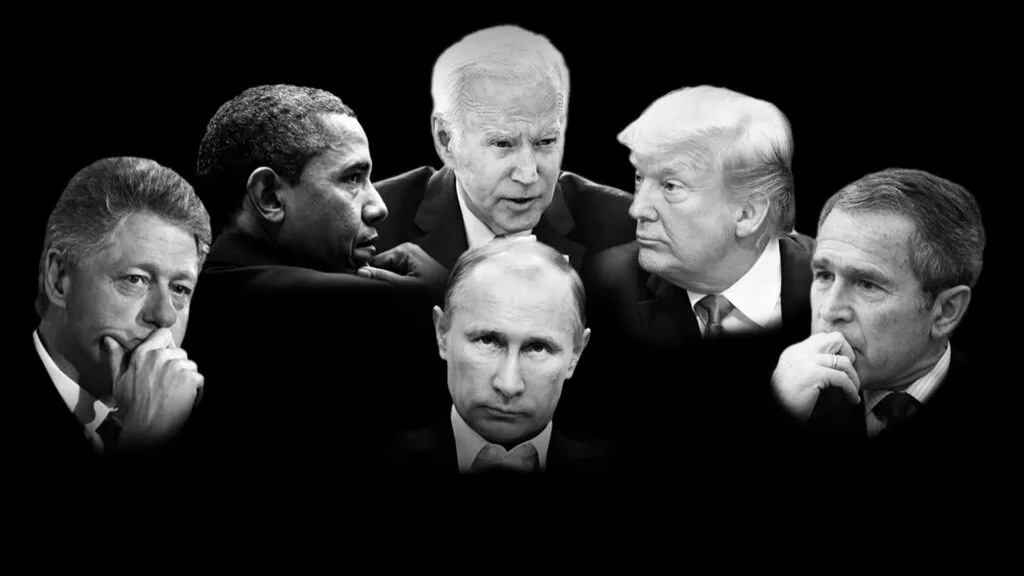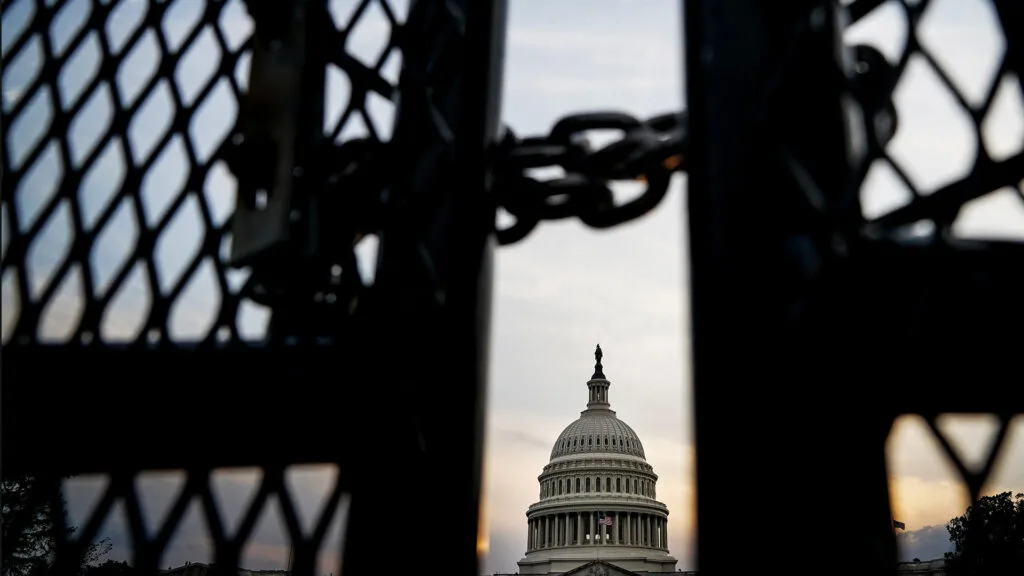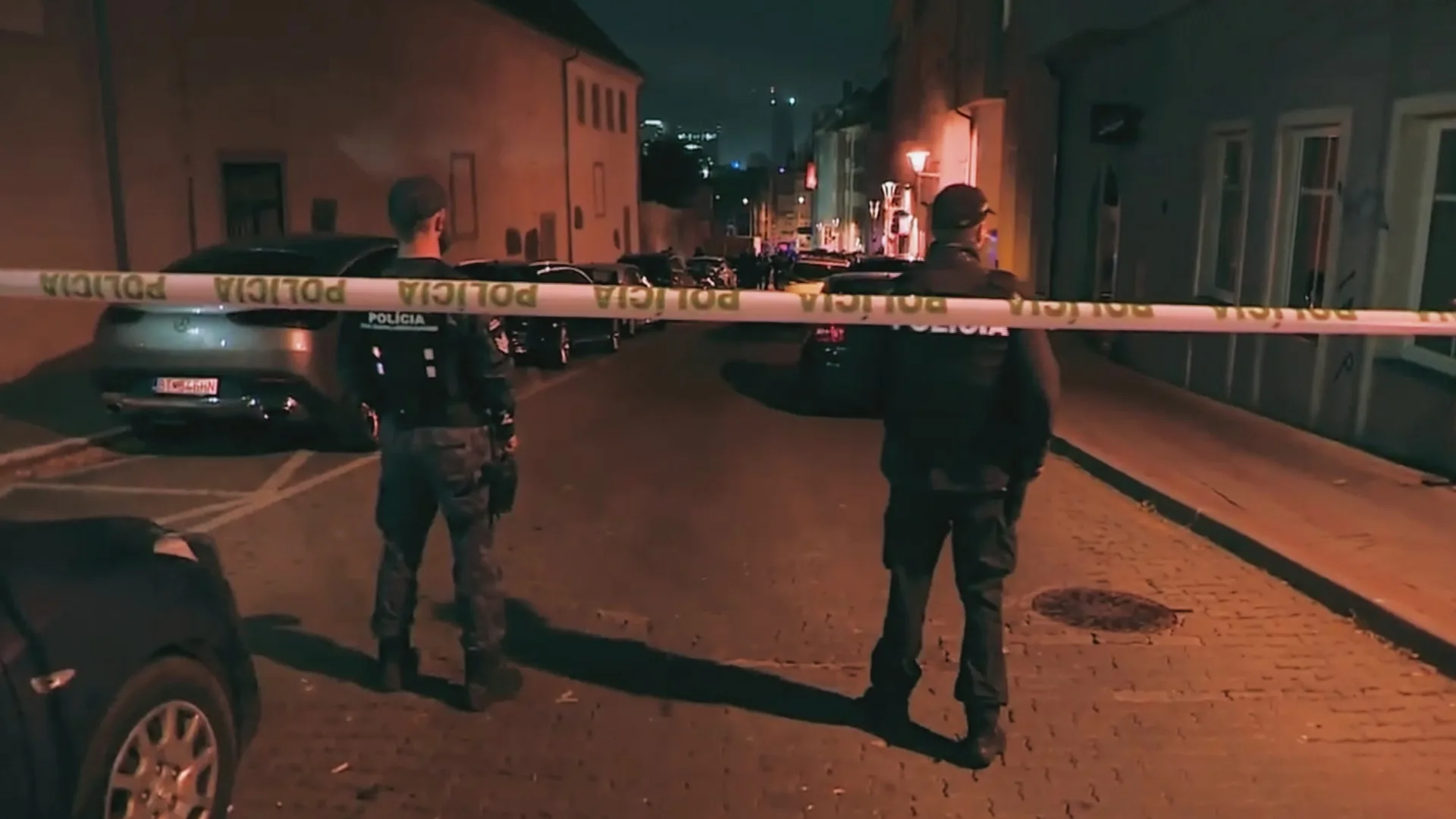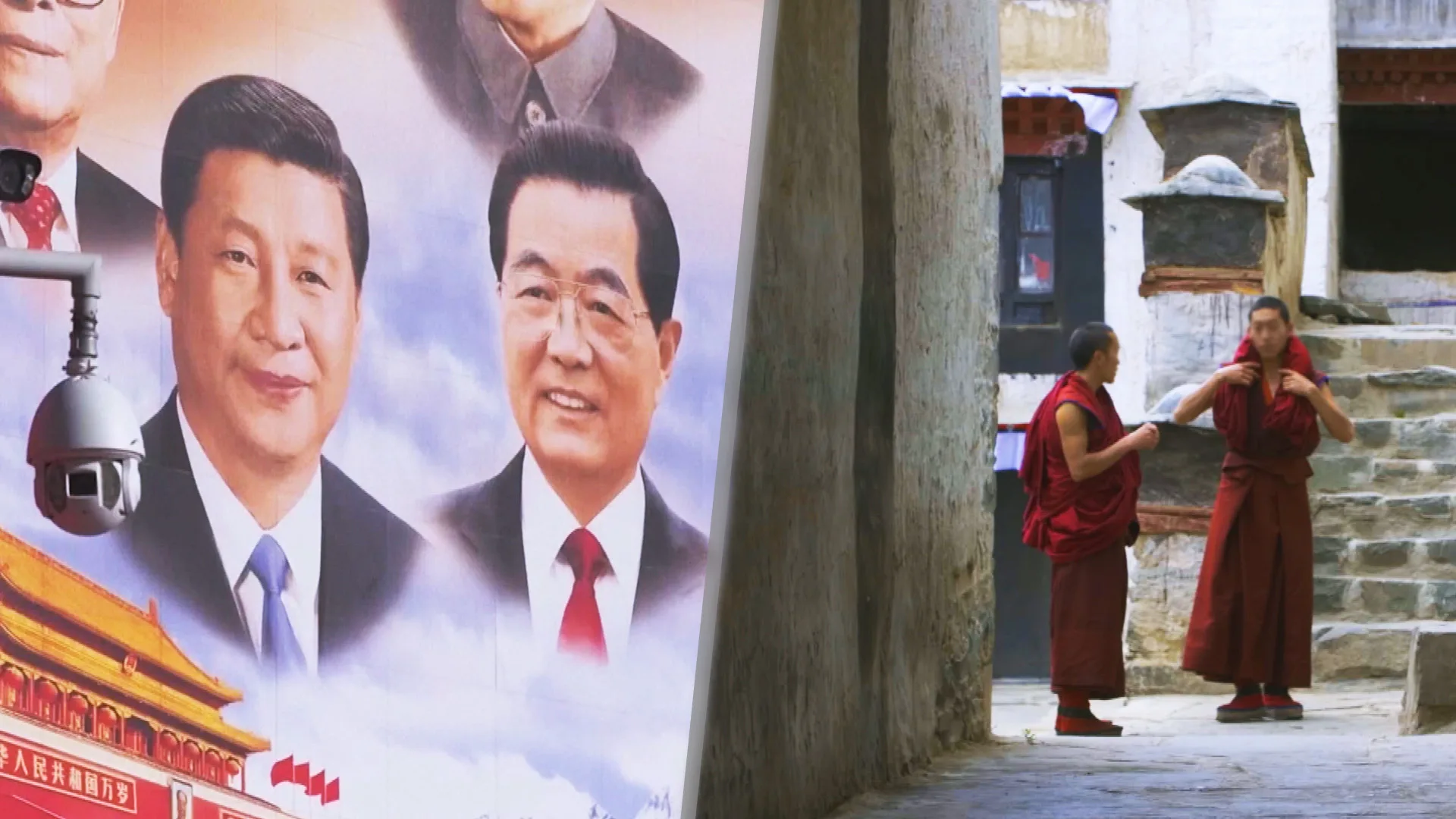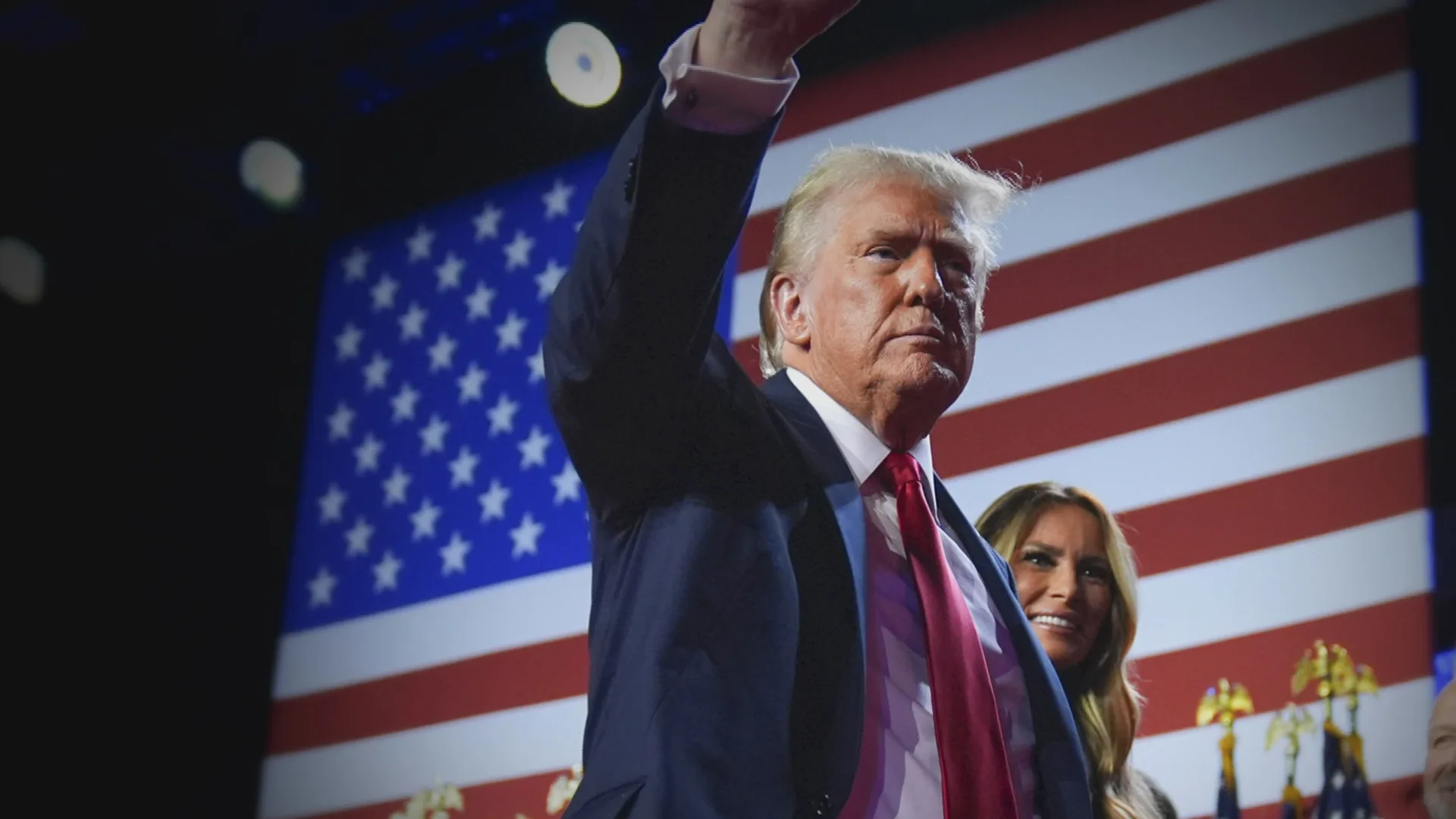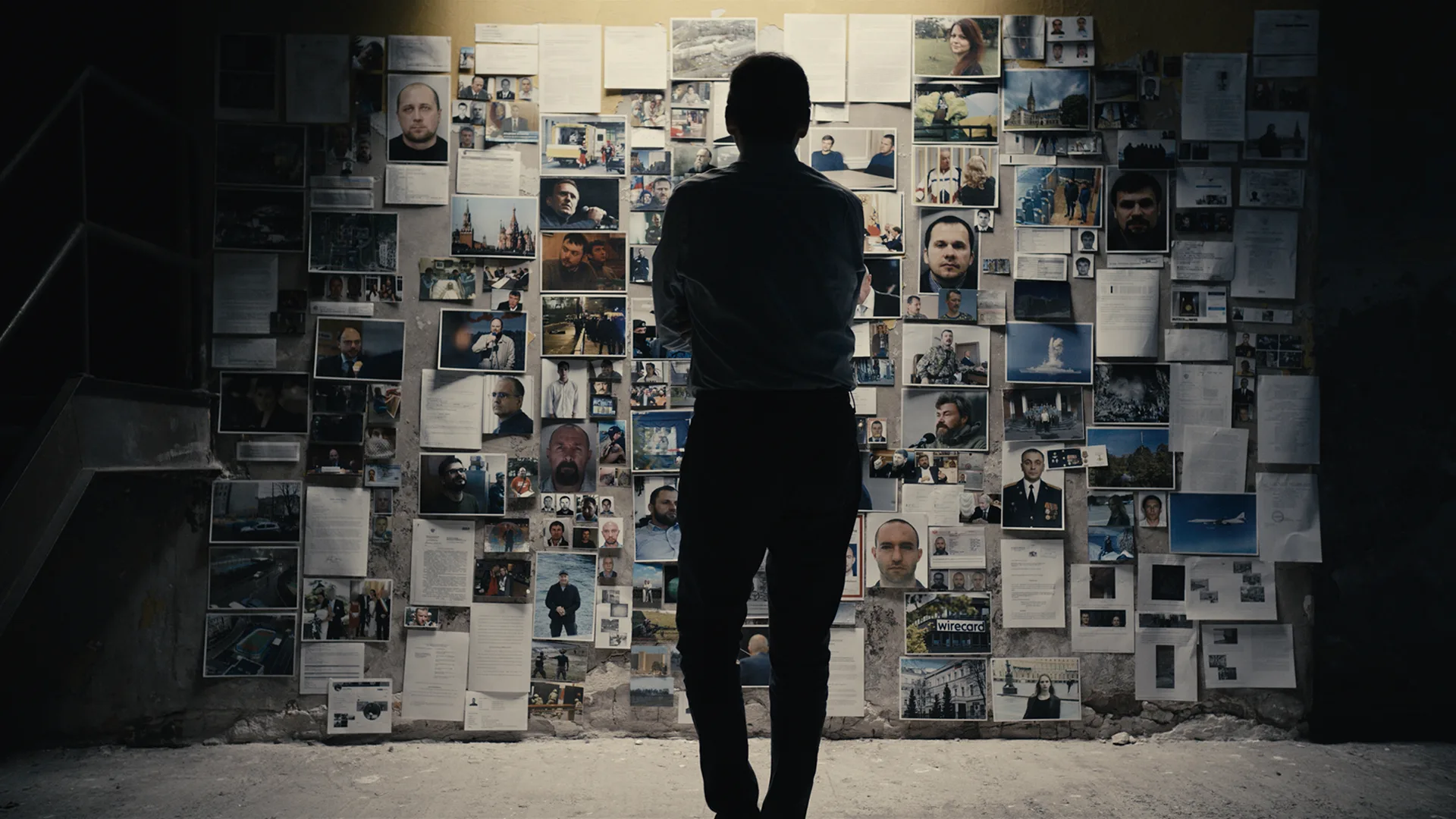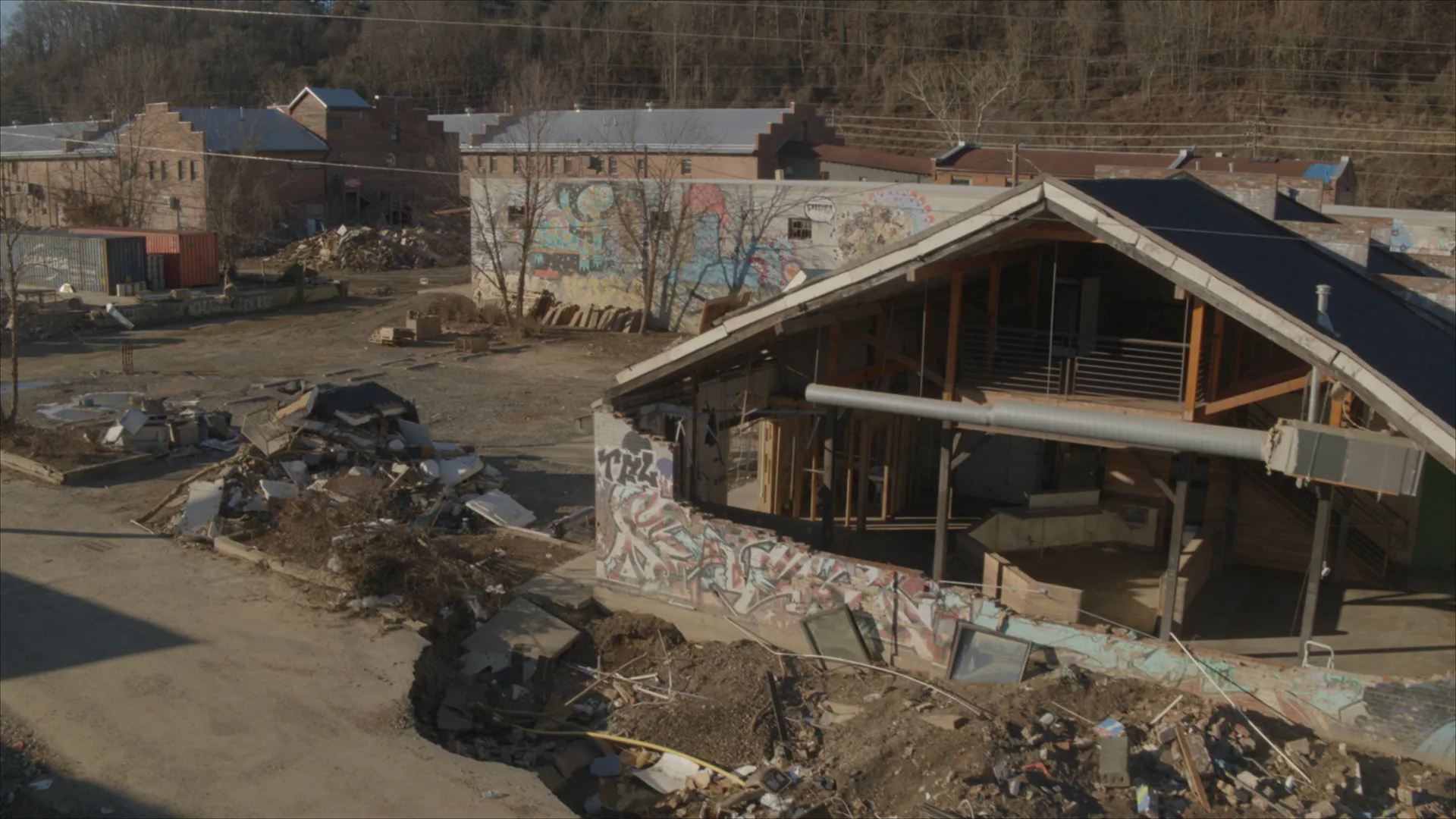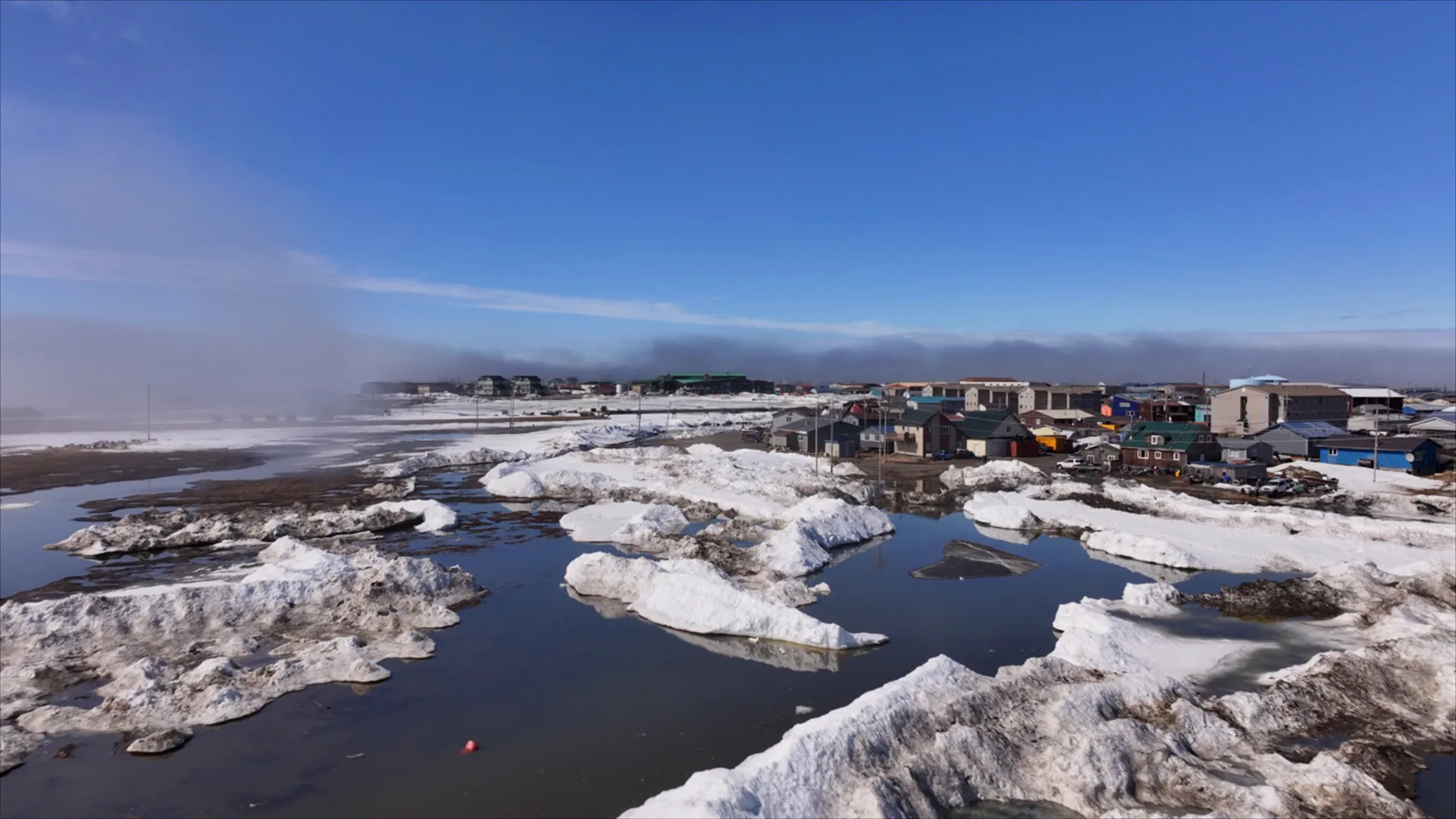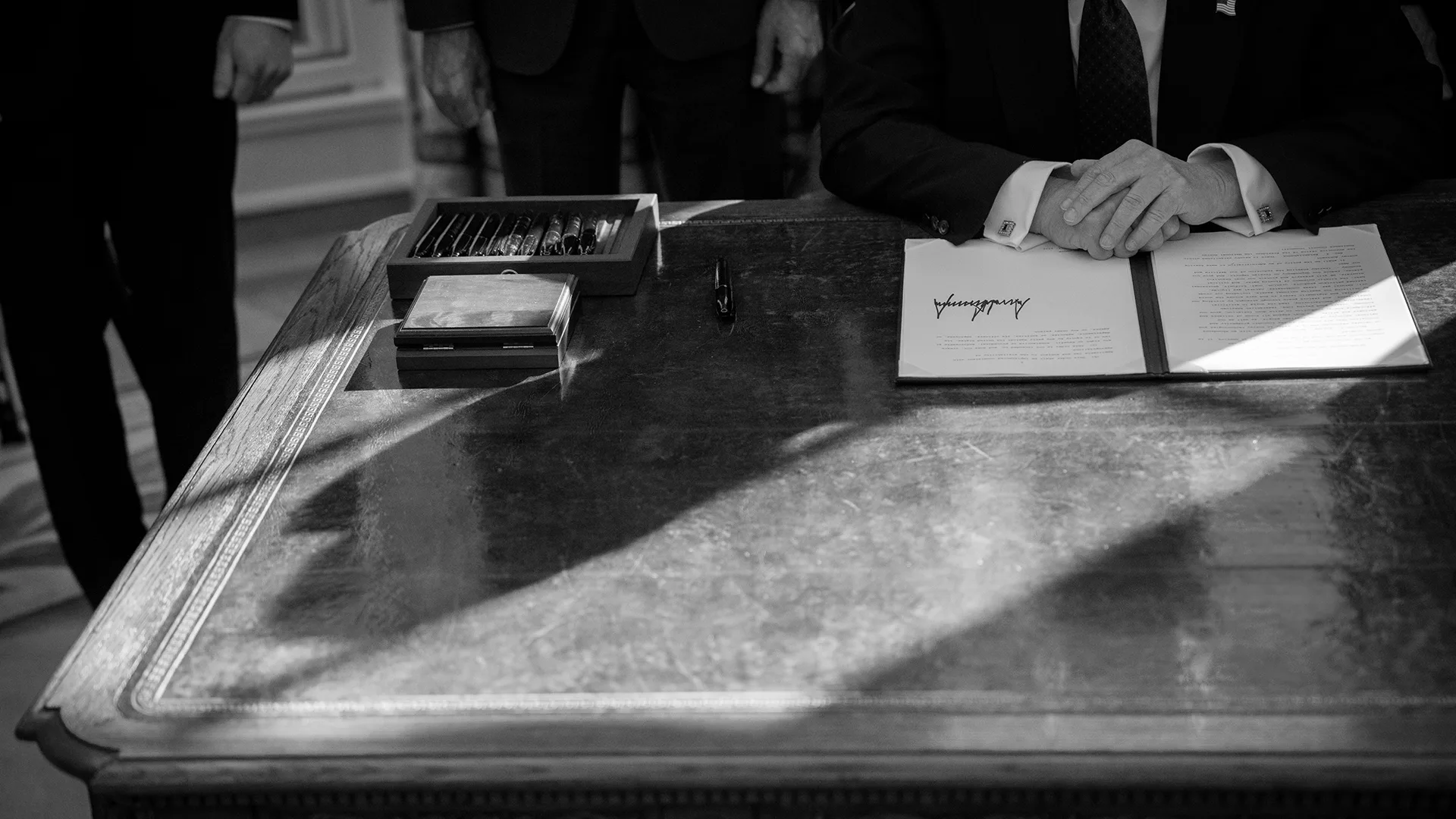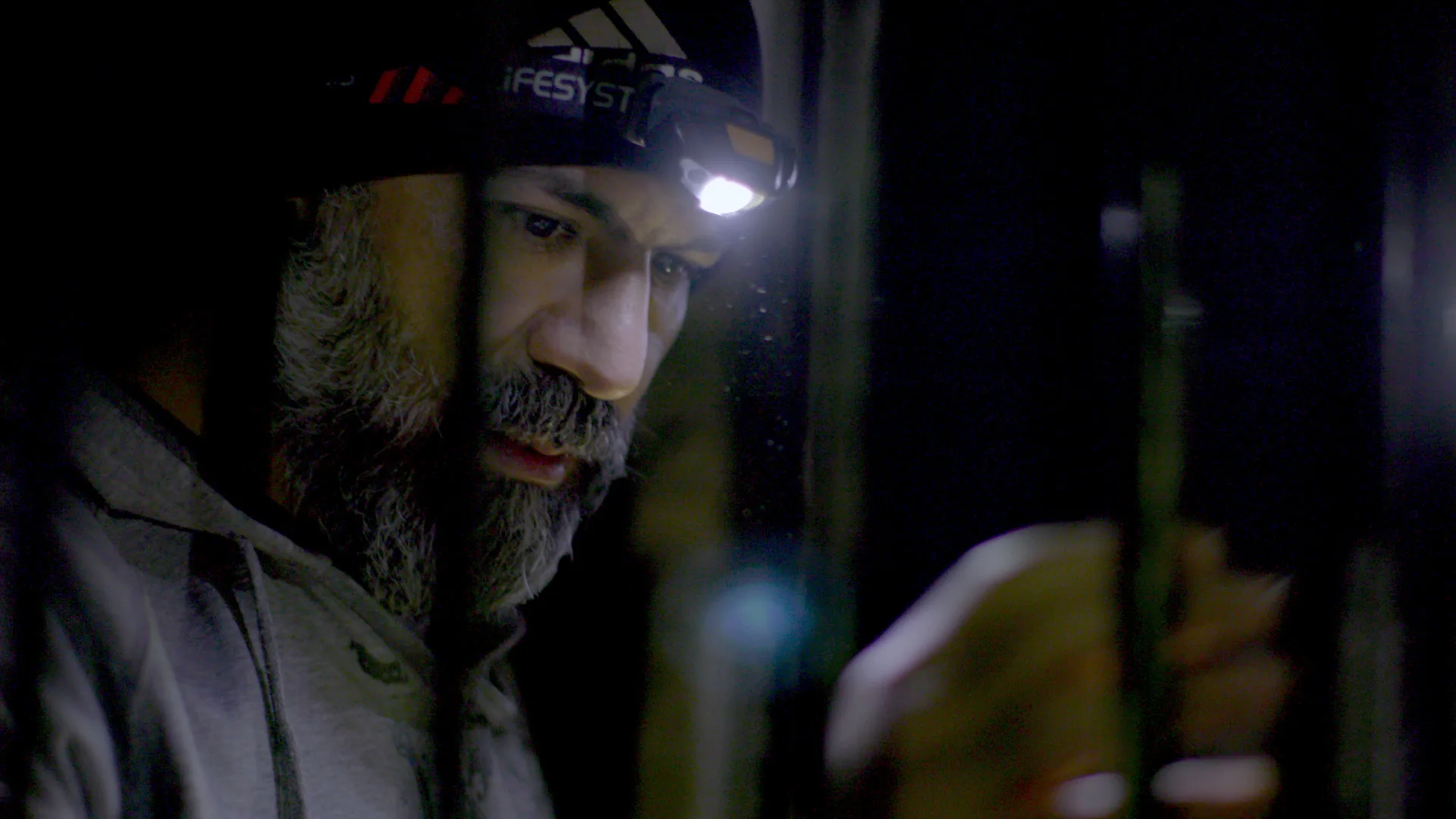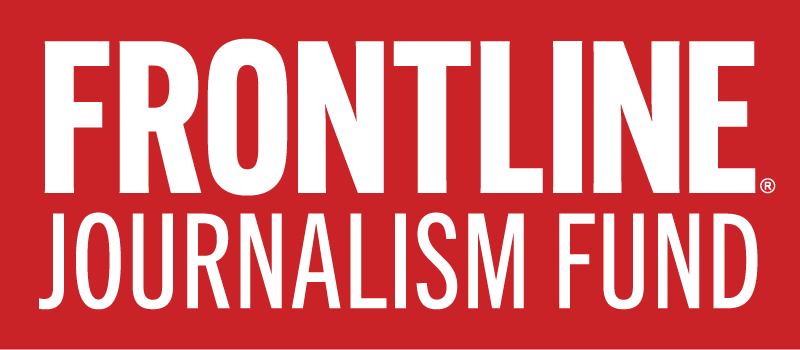The Rise of RFK Jr.
October 21, 2025
1h 54m
The dramatic and controversial rise of Robert F. Kennedy Jr
The Rise of RFK Jr.
October 21, 2025
1h 54m
Share
Tracing the dramatic and controversial rise of Robert F. Kennedy Jr., FRONTLINE examines how the scion of a storied dynasty endured tragedy and scandal, broke with the Democratic Party and his family, stoked conspiracy theories, and is reshaping government and public health.
Directed by
Transcript
Credits
Journalistic Standards
Support provided by:
Learn More
More Documentaries by Michael Kirk
Most Watched
The FRONTLINE Newsletter
Related Stories
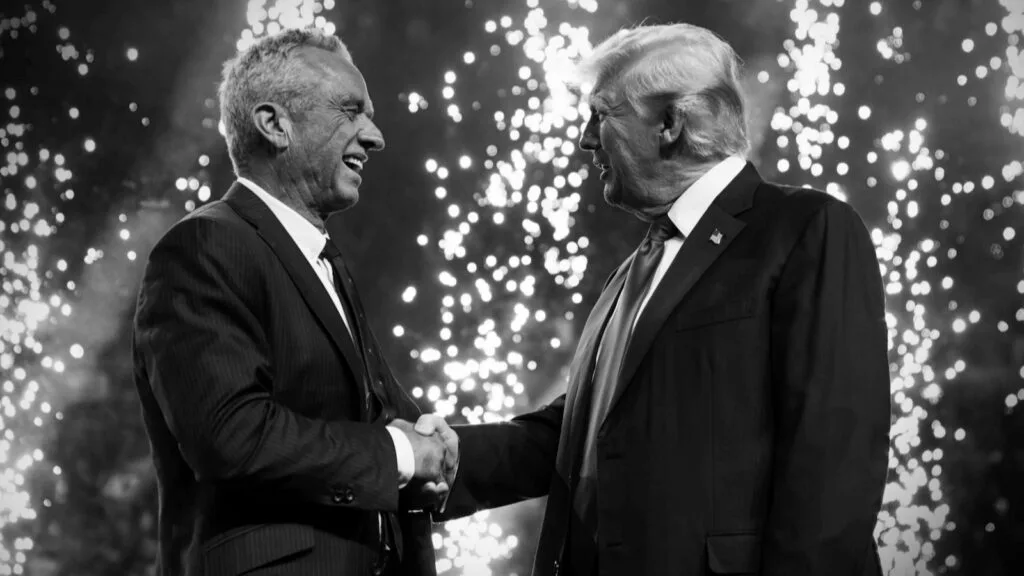
How the ‘Unthinkable’ Alliance Between RFK Jr. and Donald Trump Came to Be
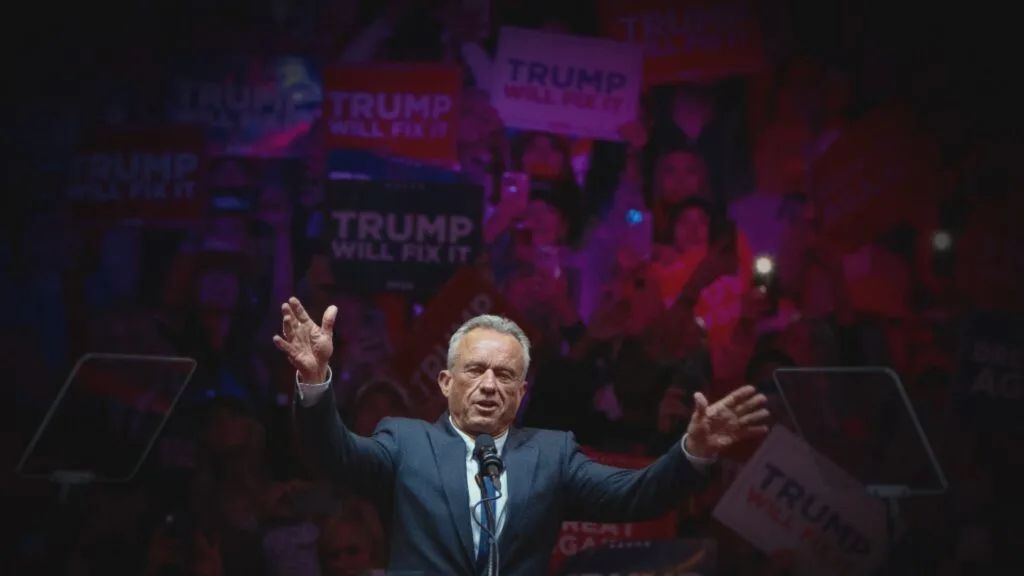
Filmmakers Sought to Unearth the “Real” RFK Jr.
Related Stories

How the ‘Unthinkable’ Alliance Between RFK Jr. and Donald Trump Came to Be

Filmmakers Sought to Unearth the “Real” RFK Jr.
… every morning without one exception, I have sent a prayer to God … … this year, God sent me Donald J. Trump.
‒ Robert F. Kennedy Jr.
November 2024
FEMALE NEWSREADER:
Independent presidential candidate Robert F. Kennedy Jr. is struggling to get supporters to dig in deep for donations.
FEMALE NEWSREADER:
It is a very, very long shot for RFK Jr.
MALE NEWSREADER:
Robert F. Kennedy Jr. is seen now as running a disappearing campaign—the window, closing.
MALE NEWSREADER:
Something has happened at the Trump—Oh, we see Donald Trump there at a rally in Pennsylvania—
FEMALE NEWSREADER:
Clearly Secret Service wants to get him out of this situation.
DEL BIGTREE, Kennedy ’24 campaign:
The moment that Donald Trump was missed by the bullet, we all saw this image of Trump standing with the American flag blowing behind him and blood running down his face. I don’t know how you beat that image. Let me speak for myself: I just thought, “He just won the presidency of the United States of America.”
CALLEY MEANS, Kennedy ’24 campaign:
I felt very emotional watching on TV President Trump put his fist up. There was something so powerful and visceral, watching President Trump with the blood dripping down his face and the history of Bobby’s experiences with assassination.
MALE NEWSREADER:
Law enforcement agencies are treating this as an attempted assassination.
CALLEY MEANS:
I felt a spiritual urge to call Bobby and put on his radar that this might be the time to call President Trump. And Bobby, after some reflection, thought that was a good idea. And I worked with Tucker Carlson, who connected Bobby to President Trump as he was leaving the hospital.
DONALD TRUMP:
I just turned my head to show the chart, and something rapped me. It felt like a giant, like the world’s largest mosquito.
CALLEY MEANS:
I think a real relationship between the two men was forged on that first night.
DONALD TRUMP:
And, uh, it was, it was a bullet going around. You know, what do they call that—an AR-15 or something. That’s a big gun. Those are pretty tough guns, right?
DEL BIGTREE:
Bobby asked about his family. Having grown up with assassinations in his own family, he said, “This can be very traumatic for your kids and your grandkids. How’s everybody doing?” Trump said, “I appreciate you asking, Bobby. You know, everyone’s doing OK under the circumstances.” President Trump then said to Bobby, “I’m glad you called, Bobby. I’ve been wanting to talk to you. We should really work together.”
DONALD TRUMP:
I would be, I would love you to do something. And I think it will be so good for you and so big for you. And we’re going to win. We’re going to win.
ROBERT F. KENNEDY JR.:
Yeah.
DEL BIGTREE:
We were all sort of shocked. We just thought it was going to be a condolences call to wish everyone well, but it really sunk deep into Bobby. And we’re like, “Wait a minute, are you—Are you actually considering joining President Trump?” And he said, “I don’t know.” Which meant to all of us, oh, my God, he’s thinking about this.
FEMALE NEWSREADER:
The son of Democratic icon Robert Kennedy suspending his independent campaign and endorsing Donald Trump.
MALE NEWSREADER:
Kennedy has done the unthinkable: throw the family name behind a Republican candidate.
CLARE MALONE, The New Yorker:
He’s seen his elevation to power and status again. It’s a real inflection point, a real renaissance. I think that’s really notable in his life. He’s already had a period in his life when he was an addict. He publicly had a fall from grace, rehabilitated himself. He became a vaccine skeptic, fell from mainstream grace. Now he’s been rehabilitated by a powerful sector of American society. He’s kind of becoming a Kennedy again in that glamorous Camelot way, but within the Trump movement. He’s the most famous Kennedy in America right now.
ROBERT F. KENNEDY SR.:
I am announcing today my candidacy for the presidency of the United States.
NARRATOR:
In 1968, 14-year-old Bobby Kennedy watched as his father commanded the national spotlight.
REBECCA DAVIS O’BRIEN, The New York Times:
I think about what it must have been like to be a young child raised with cameras on you all the time. There’s a lot of mythologizing that begins almost from the cradle in that family. He writes about the kind of access that he had as a young child to some of the biggest political figures of his time. Bearing witness to moments in history that most of us just read about in history books. That has a pretty powerful effect on a young person in their sense of a mandate to do something with their lives.
ROBERT F. KENNEDY SR.:
Until these matters are remedied, we cannot be satisfied, and that’s why I run for president of the United States.
JOE HAGAN, Vanity Fair:
Bobby Kennedy, the father, was running for president as a kind of, having taken the baton of JFK and taking it to a new place.
CROWD [chanting]:
We want Kennedy! We want Kennedy!
NARRATOR:
It had been four years since young Bobby’s uncle, President John F. Kennedy, had been killed.
MALE NEWSREADER:
President Kennedy has been assassinated. It’s official now; the president is dead.
CLARE MALONE:
RFK, particularly in the wake of his brother’s death, had a real deep, spiritual soul-searching. And that run in ’68 was pretty monumental, and pretty brave, in a lot of ways, for someone who had watched his brother die in public life.
ROBERT F. KENNEDY SR.:
I run because I am convinced that this country is on a perilous course, and because I have such strong feelings about what must be done, and I feel that I’m obliged to do all that I can.
DICK RUSSELL, RFK Jr. biographer:
He was willing to fight for what he believed was right, and he was willing to make sacrifices. Robert Kennedy learned through losing his own brother about being a compassionate human being. And he carried that on as he was able to touch and reach people in that way that I think Bobby Jr. really longed for himself.
ROBERT F. KENNEDY SR.:
I ask for your help to change the course of the United States, to give us back our spirit, give us back our heart and give us back our soul. I ask for your help.
DICK RUSSELL:
Bobby saw, as a boy and a teenager, that his father had these qualities. His dad was definitely someone he emulated and felt he had to continue to do whatever he could as he grew up to follow that. He deeply, deeply loved his father.
NARRATOR:
Home was Hickory Hill, a Virginia estate where his father built a paradise for Bobby, his brothers and sisters.
REBECCA TRAISTER, New York Magazine:
The backdrop for this is this very unusual childhood. He’s one of 11 children in a house that is wild in a lot of ways. Wild with kids running around, wild with this big family. And there’s a lot of money. And there’s a ton of animals.
STEPHEN KENNEDY SMITH, Cousin:
He had a lot of exotic animals—lizards and snakes and he had a terrarium in Hickory Hill. Hickory Hill was, as André Malraux said, “Hell’s a poppin’.”
NARRATOR:
Bobby’s cousin Stephen was often at Hickory Hill.
STEPHEN KENNEDY SMITH:
It was a really fun, chaotic and interesting place to be. They had a pet show every year for charity.
MALE PET SHOW EMCEE:
All right, let’s hear it for the hawk.
DICK RUSSELL:
When he was very young his father gave him a gift, and it was a red-tailed hawk. And he fell in love with this bird.
NARRATOR:
Dick Russell wrote a biography of RFK Jr. and is a close friend.
DICK RUSSELL:
He went from raising falcons to white-water rafting trips that his father took him on, on the Hudson River and elsewhere—took him down the Grand Canyon. Showed him the beauty of the outdoors, and he fell in love with it.
ROBERT F. KENNEDY SR.:
—and Bobby, what kind of animals?
ROBERT F. KENNEDY JR.:
We saw some deer tracks.
FINTAN O’TOOLE, The New York Review of Books:
I think for a boy growing up in this sort of fairy tale atmosphere, it must have been really exciting, privileged, energizing in all sorts of ways. But also nightmarish. What happens when it goes wrong?
ROBERT F. KENNEDY SR.:
My thanks to all of you, and now it’s on to Chicago and let’s win there. Thank you very much.
FINTAN O’TOOLE:
What happens when it turns out not to be a dream, but actually turns into a kind of nightmare? Which it does, in the most horrible, violent ways.
MALE REPORTER:
Sen. Kennedy has been shot! Is that possible? Is that possible?
FEMALE VOICE:
Why? Oh, why? Oh, my God.
MALE REPORTER:
Sen. Kennedy has been shot.
MALE VOICE:
That’s it, Rafer, get it. Get the gun, Rafer. OK, now hold onto the guy. Hold onto him. Hold onto him, ladies and gentlemen—
Hickory Hill
NARRATOR:
Cameras captured the moments of Bobby grieving.
CATHOLIC PRIEST:
Come, Holy Spirit, fill the hearts of your faithful and kindle in them the fire of your love. Come, thou Holy Spirit, come, and from thy celestial home, shed a ray of light divine.
CLARE MALONE:
The day of the funeral, he just kind of goes up to his father’s office, and looks at all the pictures, and lays down and just cries. It’s just a 14-year-old kid sobbing for hours in his father’s office.
From my youngest days I always had the feeling that we were all involved in some great crusade, that the world was a battleground for good and evil, and that our lives would be consumed in that conflict.
‒ Robert F. Kennedy Jr.
American Values
MALE NEWSREADER:
Now the car bearing Sen. Kennedy is passing by.
STEPHEN KENNEDY SMITH:
My father organized that train that went from St. Patrick’s Cathedral to Arlington Cemetery. I was on that train myself. I, like Bobby, looked out the window for I think it was 6 hours. Over 2 million people, I believe, on the tracks. It was very, very moving.
REBECCA DAVIS O’BRIEN:
Losing a parent under any circumstance is devastating, especially when you’re young. It has to be exceptionally more so when you’re in the public eye and you’re 14 years old. It was probably extremely traumatic and terrifying and sad.
FINTAN O’TOOLE:
How do you make sense of your life, as John Kennedy’s nephew and Robert Kennedy’s son, carrying almost a stigmata? Are you good enough to be that kind of martyr? It’s a burden even in much better circumstances, but to do so in circumstances of trauma, of just immense pain, it just has to leave very, very deep psychological scars.
STEPHEN KENNEDY SMITH:
That was a really difficult time, after Bobby’s father was killed. Things definitely changed. I think a lot of people had maybe unrealized trauma, looking back on it. I think people just sort of soldiered through it. And it was probably difficult for a lot of people, not only in my generation, but for the older generation as well.
NARRATOR:
Bobby’s mother struggled to comfort her children.
CLARE MALONE:
Ethel was pregnant with her 11th child when RFK was assassinated. And I think she was overwhelmed in the aftermath of the assassination. Bobby really was a little bit lost in the shuffle. The effect of that for Bobby Kennedy was a really difficult relationship with his mother—a contentious relationship with his mother.
REBECCA DAVIS O’BRIEN:
She sent him off to boarding school. He gets sent off to start his freshman year of high school months after his dad is shot, and at boarding school, far from his family.
NARRATOR:
He lasted two years before being kicked out, and went on to cycle through two more schools.
SKIP HINE, Pomfret classmate:
He was somewhat of a loner. He just wanted to disappear. He was a lost soul, is the best way I could describe it.
NARRATOR:
Skip Hine and Bobby were classmates at the elite Pomfret School.
SKIP HINE:
There was one picture in my yearbook of him sitting in a field in front of the dorms with his back to the camera. He avoided all the photographs. I just never really saw him being in big groups. I didn’t see him with a big, jovial laugh. He was just very subdued, but very polite. Considerate. But he was much more alone.
GAVIN DE BECKER, Friend:
The tragedies that he experienced, and most of all the loss of his father, who he was very close to, led to the need to escape. And very quickly he was using drugs.
CLARE MALONE:
Bobby does a lot of drugs, and he acts out and he goes to a lot of different schools. And I think he’s a bad boy. To me it’s sort of a classic, very tragic portrait of a struggling adolescent.
JOE HAGAN:
He’s a young man whose father just was assassinated. This is an inescapable trauma. He was never grounded, really, and I think that the ready availability of drugs and the times he was in—it’s the early 1970s—kind of conspire to create an environment that’s not going to help ground him.
MALE NEWSREADER:
Once again members of the Kennedy family are in the news, and the occasion is not a happy one.
NARRATOR:
At 16, his arrest for drug possession became national news.
MALE NEWSREADER:
Warrants have been issued for the arrest of Robert F. Kennedy Jr., the 16-year-old son of the late senator, on marijuana charges.
MALE NEWSREADER:
Because of the Kennedy name they will also face the national spotlight.
DICK RUSSELL:
His mother was really upset. She was really angry and told Bobby he was ruining the family name.
NARRATOR:
But Ethel and the family hoped Bobby would redeem himself on the well-worn Kennedy path—Harvard.
REBECCA DAVIS O’BRIEN:
That’s part of the Kennedy family legacy. He was a screwed-up teenager who got thrown out of two boarding schools and still ended up at Harvard because he has the Kennedy name and pedigree. Harvard was a space in which there were no consequences for bad behavior.
STEPHEN KENNEDY SMITH:
Clearly, growing up in a powerful, wealthy family is an advantage. No question. Joseph P. Kennedy Sr. went to Harvard. My uncle Joe’s name is on the wall of the Harvard Church. Obviously John F. Kennedy went to Harvard. RFK went to Harvard.
KURT ANDERSEN, Harvard classmate:
He was Robert F. Kennedy Jr. Tall and handsome and charismatic and a Kennedy. He was a kind of classic of a type at that moment, which is this sort of preppy hippie. He had long hair, and he smoked pot a lot.
NARRATOR:
Kurt Andersen was a Harvard classmate.
KURT ANDERSEN:
I had heard that, oh, the young, cool, glamorous, preppy kids were using cocaine, and it’s great, and what do you know—Bobby Kennedy Jr. is a dealer of cocaine. And it was exciting. I was buying cocaine and I’m buying it from Robert F. Kennedy Jr. I wondered, does he need to do this? Is he not getting a big enough allowance, or is this a way to support his own habit? I didn’t know, but I took it as an act of kind of performative outlawry. He’s a cool cat, outlaw guy who can do this.
NARRATOR:
He wasn’t just using cocaine. It was speedballs—cocaine mixed with heroin.
JOE HAGAN:
I mean, we’re talking about shooting speedballs and very hardcore drugs that are not social in any way. They are drugs that leave you kind of nodded out and alone in a room. It was self-destructive and grim.
RFK Jr. podcast interview, 2024
ROBERT F. KENNEDY JR.:
Coke and heroin were my drugs of choice over the next 14 years. People had an idea that something was wrong, but no clue about how badly off I was.
BLAKE FLEETWOOD, Friend:
He just wanted to be removed from the life. He just wanted to get away from his life. There’s an absolute direct relationship between the tragedies and his addiction.
NARRATOR:
Blake Fleetwood has been friends with Bobby Kennedy since his Harvard days.
BLAKE FLEETWOOD:
His addictions were very serious, and they were very concerning. He could have died many times. He’s oblivious to danger out there. I’ve seen him in lots of situations—swimming across a river filled with piranhas and stuff like that.
DICK RUSSELL:
It was a very desperate, desperate time for him. I think there was a point in his life where he didn’t really care that much whether he lived or died.
NARRATOR:
But even as he struggled, he increasingly tried to project the image of a Kennedy.
DICK RUSSELL:
Bobby was good at compartmentalizing. He was very high-functioning. Even as he took drugs he could go on and do what he was going to do.
JOE HAGAN:
Not many people knew he was a drug addict. There’s this private, dark side to him, and then there’s this public side, which he’s able to act out very credibly.
NARRATOR:
Like his uncle JFK, Bobby’s senior thesis even became a book, which he promoted on television.
MALE TV HOST:
Our first guest, Robert F. Kennedy Jr., son of the late Sen. Kennedy from New York. This is his book, Judge Frank M. Johnson—
REBECCA TRAISTER:
There’s a consistency in his life story in that whatever messes are happening internally or in his personal life, nothing scuffs the notion that he is this golden boy, inheritor of a golden legacy.
ROBERT F. KENNEDY JR.:
I think the racial issue—
MALE TV HOST:
We think it’s really still very, very bad down there?
ROBERT F. KENNEDY JR.:
Well, I think it’s bad all over the country. I don’t think it’s a Southern peculiarity.
STEPHEN KENNEDY SMITH:
He definitely was ambitious. He wanted to be involved in politics. I think he felt that he might want to be president someday.
ROBERT F. KENNEDY JR.:
I’ll probably do some form of public service. I think everybody in my family really feels that a lot of my father’s goals and ideals are worth pursuing.
MALE TV HOST:
Where’d you get those shoes?
ROBERT F. KENNEDY JR.:
Those are Alabama shoes. [Laughter]
MALE TV HOST:
That is some kind of boot, I’ll tell you. OK, we’re going to take a break in just a second, don’t go away.
ROBERT F. KENNEDY JR.:
Where’d you get those shoes? [Laughter]
CLARE MALONE:
He’s trying to live a very conventional Kennedy life. He had been dutifully going to Harvard, going to UVA Law School. He’s given a position in the Manhattan DA’s Office without having passed the bar. He gets married. He’s doing a lot of really conventional things, a lot of things that are following in the Kennedy way of doing things.
REBECCA DAVIS O’BRIEN:
He married someone, Emily Black, who looked like Jackie Kennedy. People who were close to the family said, “Oh, he’s, he really is going to become politically engaged. He’s marrying someone who looks like she’s meant to be a First Lady of the United States.”
FINTAN O’TOOLE:
He’s able, clearly, to do that while he’s on heroin. To live in more than one reality at the same time. The compartmentalization that allows him to survive through that period when he’s a heroin addict has very positive effects for him, in a sense.
However, it does have long-term consequences. People who learn to compartmentalize can also be very, very good at lying. They can get very good at convincing themselves in one half of their brain that what they’re saying actually is true, even though they know it’s not.
NARRATOR:
Years later, in recovery, he wrote about it in his journal.
After daddy died I struggled to be a grownup … I felt he was watching me from heaven … I hated myself. I began to lie—to make up a character who was the hero and leader that I wished I was.
‒ Robert F. Kennedy Jr.
Journal
CLARE MALONE:
I think that there is some sense of the seams ripping a bit. Bobby fails the bar. He’s got a big lawyer job in Manhattan that’s supposed to be kind of high-profile, and he’s not doing well at it. He’s sort of succumbing to his drug addiction.
NARRATOR:
Then one night it all caught up with him.
MALE NEWSREADER:
There was a new and dramatic development today in the story of young Robert Kennedy Jr. Kennedy’s luggage was searched in South Dakota for what were called “controlled substances.”
JOE HAGAN:
He was on a plane to South Dakota. He had shot heroin and he was overdosing, and he went into the bathroom and passed out there.
MALE NEWSREADER:
Robert Kennedy Jr. has been charged with possessing heroin. A small amount of heroin was found in his flight bag.
JOE HAGAN:
And this is how it all became public.
MALE NEWSREADER:
The 29-year-old son of the late senator today was charged with heroin possession, a felony that could land him in jail for two years.
JOE HAGAN:
Suddenly, a decade of heroin abuse and heroin addiction is a public event.
FINTAN O’TOOLE:
His fall from grace is very public. There’s a taint of shame, of failure. But it’s not just his own personal shame, his own hitting rock bottom. It’s this whole great saga, multigenerational saga of the Kennedys coming potentially to this point of self-abasement.
NARRATOR:
The devastation wouldn’t stop there.
FEMALE NEWSREADER:
The family whose tragedies our country has followed and indeed felt has been struck once again— David Kennedy found dead in a Palm Beach, Florida, hotel room.
REBECCA DAVIS O’BRIEN:
David Kennedy, who was Bobby’s younger brother, he died of an overdose in Florida shortly after Kennedy had his arrest in South Dakota.
CLARE MALONE:
The death of a close sibling, a sibling friend, I think it must have been absolutely devastating to Bobby. They were really close—they were close in age, they were playmates when they were really little. David was at Harvard with Bobby. David developed a drug addiction. Where Bobby was kind of charismatic and cool, David was really desperate.
REBECCA DAVIS O’BRIEN:
He used drugs with Bobby in college. I’ve heard from family friends that it was Bobby who encouraged David’s drug use, in the eyes of the family. The family and classmates both felt that Bobby was a bad influence on David.
… in order to stay sober I needed to find daily ways to be of service to others and constantly endeavor to lead a moral, rigorously honest, and upright life.
‒ Robert F. Kennedy Jr.
American Values
FINTAN O’TOOLE:
I think if you talk to a lot of people who’ve struggled with addiction, they’ll talk about the fact that they needed to hit rock bottom and realize that they have to radically change their life or they’re going to die.
NARRATOR:
Bobby had passed the bar, and in the years after the drug conviction, he’d gotten clean and become an environmental lawyer.
REBECCA DAVIS O’BRIEN:
Not only did he get clean, at a rehab facility on the East Coast, but part of the plea deal was that he had to do community service, and by chance he ended up working on a project in the Hudson Valley.
ROBERT F. KENNEDY JR.:
Nature to me was always something that was important. It was always a place that I went to fill some emptiness inside of me.
CLARE MALONE:
He had an amazingly precipitous fall from grace, and this period of his life when he’s an environmentalist is sort of a personal redemption, a professional redemption for him. He’s seen as a good guy again.
ROBERT F. KENNEDY JR.:
This pipe has had a history of violating the law. This has been going on for a long time. It is pure, raw sewage.
JOE HAGAN:
He’s getting a taste of what it means to be respected as a Kennedy. Because suddenly that kind of destiny as a Kennedy to do something great, to pull the sword from the stone, to be heroic—it’s like a package handed to him. He takes on the mantle of the environmentalist, and he’s good at it.
ROBERT F. KENNEDY JR.:
And if somebody dumps something into the river that goes into—that’s poison, and it goes into a drinking water intake and children drink that drinking water, that is child abuse.
KURT ANDERSEN, Fmr. editor, New York Magazine:
When I was editor of New York Magazine in the mid-’90s I put him on the cover with some headline like, “This is the Kennedy that really matters.” OK, so he’s pulled his life together and, oh, he’s an environmental lawyer, good. Oh, saving the Hudson River. I like that, great. He seemed like he’s doing good work.
NARRATOR:
He made other changes to his life, too: He divorced Emily Black, remarried and started a new family with Mary Richardson.
JOE HAGAN:
Mary Richardson had been a friend of the family since she was in high school. She went to high school with Bobby’s sister Kerry. And she had always inhaled deeply of the Kennedy mythology. She believed in the Kennedys. She wanted to be around them. She worshipped them.
CLARE MALONE:
Mary was also from a big Irish Catholic family. A lot of people described her similarly to Ethel Kennedy, how Ethel Kennedy was described as more Kennedy than the Kennedys. Mary also really embraced the idea of being a friend of the Kennedys, and eventually really loved the idea of being Bobby Kennedy’s wife.
NARRATOR:
They had four children and an estate in Westchester County, New York.
CLARE MALONE:
He was on the gala circuit. In a lot of ways, he kind of had a life that was really admirable, and one to be envied.
STEPHEN KENNEDY SMITH:
It was really great. I was really happy for him, that he had found something that was a deep interest and he seemed to excel at. We always felt that he was a very promising, talented person.
KURT ANDERSEN:
Bobby Kennedy. I mean, his name was everything. I mean, if he were Randy Johnson, that person would not be famous. They just wouldn’t. They would not get attention.
REBECCA TRAISTER:
He strikes me as undeniably addicted to attention.
NARRATOR:
Rebecca Traister is a journalist and author who has written extensively about politics, gender and power. She profiled Bobby Kennedy for New York Magazine.
REBECCA TRAISTER:
It was very clear to me when I met him, even. We had lunch, and he carries himself with the air of somebody who expects people to be looking at him and paying attention to him. And he strikes me as a kind of person who has an unhealthy sense of his own importance. That you can do drugs and get caught doing drugs yet never have to face any of the consequences that somebody without your privilege has to face, and to still have people want to be around you, to cover you, to publish you, to ensure that you’re still a public figure, I think it must give you a sense of omnipotence that is very distorting.
CLARE MALONE:
That period of the late ’90s, on the surface it’s a period of great contentment, professionally and personally, for Bobby Kennedy. He has a nice home in the Hudson Valley, a beautiful wife, a nice job. But there’s also a darkness to that period that kind of exists in the private realm with Kennedy.
I have been given everything that I coveted … yet always on the lookout for something I can’t have. I want it all … No matter how much I have—I want more.
‒ Robert F. Kennedy Jr.
Journal
NARRATOR:
Bobby Kennedy’s desires found a new form.
CLARE MALONE:
He was in a recovery from his drug addiction, but by many accounts was a sex addict.
JOE HAGAN:
I would say the arc of his life is trading one addiction for another. Addiction. I think that word has to be seen throughout this story, starting with the heroin addiction, and the addiction to sex. They’re all of a piece.
NARRATOR:
It affected many people along the way, including a 23-year-old woman who worked in his law clinic and was the family’s live-in babysitter.
ELIZA COONEY, Kennedy family babysitter:
I was facing away from the kitchen, reaching up, getting pasta or something off the shelf. He came to the pantry, came up behind me, and I feel him and I feel his hands on the back of my hips. The hands were doing the move up my skin and up the side of my body. You know, up, up, up, up, up, up!
NARRATOR:
Eliza Cooney says it was just one of a number of similar incidents.
ELIZA COONEY:
I think he was testing me. I think he was trying to see if I was interested. Maybe I was one of those people who wanted to throw myself at him, like all of, I don’t know, the throngs of adoring women. I was not.
NARRATOR:
When Cooney went public in 2024, Kennedy said he didn’t remember those moments but apologized to her. He has since denied he did anything wrong.
REBECCA TRAISTER:
He is alleged to have harassed a babysitter. This is not just, “Oh, I met a woman at a party.” The entitlement that is almost surely a product of all of this, all of these endless resources and endless wells of forgiveness, breeds this sense that you can do anything and get away with it.
ELIZA COONEY:
He came off to me as somebody who was in the bow of the boat. And he could call directions and say, “I want to do this, or go here.” He just got to be the bow of the boat. He never had to worry about the wake behind him that he left.
REBECCA DAVIS O’BRIEN:
She described it as, he gets to kind of call the shots and totally disregards the mess that he’s uniquely capable of making. There’s no consequences, but the rest of the world, who are his family and his household staff, all suffer the consequences.
I’m like Adam and live in Eden, and I can have everything but the fruit. But the fruit is all I want.
‒ Robert F. Kennedy Jr.
Journal
CLARE MALONE:
Bobby was just having flagrant affairs in the area, with people who are close to his wife.
REBECCA DAVIS O’BRIEN:
Mary Richardson, it’s been reported that she was aware of his infidelities, and they drove her mad. They made her insane with jealousy.
CLARE MALONE:
People would say that he was maybe a bit of a gaslighter in their relationship, denying what was, to her, very obvious. Mary certainly developed her own addiction problem but was also really distraught by I think the posture that Bobby had taken about his cheating. She felt gaslit, by many accounts.
JOE HAGAN:
You could imagine this isn’t great for her self-esteem, and isn’t great for her mental state. She may have had depression and challenges that predated her marriage to Kennedy, but they certainly weren’t helped by being married to him.
NARRATOR:
They eventually separated, and he filed for divorce.
MALE NEWSREADER:
Another tragedy to strike the Kennedy family: Mary Kennedy, the mother of four children of Robert F. Kennedy Jr., has been found dead.
FEMALE NEWSREADER:
Police in Bedford, New York, confirmed they found a body on Kennedy’s property Wednesday afternoon.
FEMALE NEWSREADER:
Mary Kennedy’s body was found hanging in the barn in the back of the house.
CLARE MALONE:
She hangs herself. This is the mother of four of his children. It’s an incredibly tragic moment, privately.
JOE HAGAN:
This is an extremely dark moment for Bobby, and very disturbing for his family and friends. The Richardson family is so angry and horrified by this event, and they blame Bobby.
REBECCA DAVIS O’BRIEN:
Her death I think marks the moment where he stops being a media darling and became kind of a villain figure again to the mainstream media.
MALE NEWSREADER:
Kennedy watchers say the Richardson family feels Robert Kennedy didn’t do enough to help Mary, and photos like this of Robert and actress Cheryl Hines, the two reportedly dating, didn’t help.
MALE NEWSREADER:
Just days after the shocking death of Mary Richardson Kennedy, both sides of that family are now embroiled in a feud.
REBECCA DAVIS O’BRIEN:
It was her death and the public response to it, and her family’s response to it, and then the publication of the quote, unquote “sex diary” shortly after marked a changed in his public persona or the perception of who Bobby Kennedy is.
MALE NEWSREADER:
A diary allegedly obtained by the New York Post reveals that Robert F. Kennedy Jr. had dozens of affairs during his marriage.
FEMALE VOICE [reading New York Post article]:
A copy of the 398 pages, reviewed by the Post, record the names of women with numbers from 1 to 10 next to each entry. The codes corresponded to sexual acts, with 10 meaning intercourse.
DICK RUSSELL, Friend:
It was a very personal account of some of his philandering, I guess you’d say, if you want to call it that—his relationships with other women besides Mary.
FEMALE VOICE [reading New York Post article]:
There are 37 women named in the ledger, 16 of whom get 10s. On Nov. 13, 2001, RFK Jr. records a triple play. The separate encounters—coded 10, 3 and 2—occur the same day he attended a black-tie fundraiser at the Waldorf Astoria.
REBECCA TRAISTER, Author, Good and Mad:
He writes about all the women who he’d slept with. The way he writes about them is that they “mugged” him. That they—He was helpless, he was passive. This was something that was happening to him.
… got mugged on my way home … I’ve got to do better.
‒ Robert F. Kennedy Jr.
Journal
REBECCA TRAISTER:
He has a tremendous victim complex and cannot seem to take responsibility for any of his own behaviors.
NARRATOR:
Decades later, Kennedy talked about the journal on a podcast—why he wrote it and what he says Mary did with it.
ROBERT F. KENNEDY JR.:
The journal that you’re talking about was called is called “Your Fifth Step.” It was part of my recovery. Newspapers reported that to make it look like it was keeping a—kind of a, you know, notches-on-the-tree, and that’s not what it was. It was my own way of trying to live and examine life, and struggling with an issue that I was struggling with at that time. And I kept that fifth step in a safe, and somehow, in her—in the place where she was, she put a lot of effort into getting that safe open, and then handing that to her sisters with instruction that, if anything happened to her, it should be published in the press. And shortly after that she took her own life.
Like the martyrs and saints … we should be proud to endure ridicule, prison, and the loss of status and power. And in these moral adventures we should never relent.
‒ Robert F. Kennedy Jr.
American Values
CLARE MALONE:
Pretty soon after Mary dies, Bobby kind of packs up his East Coast life, where he’s been for his whole life up until then, and he moves to California. He moves into Cheryl Hines’ world.
NARRATOR:
He’d begun dating his third wife, television star Cheryl Hines, toward the end of his marriage to Mary.
JOE HAGAN:
And it’s sort of a fresh start for him. He’s distanced himself from all the tragedy and all the mess that he’s made back East and he hits the reset button. But he arrives with this new path that he’s on now, which is the anti-vax movement.
NARRATOR:
He was writing a book about vaccines and the dangers of mercury, an issue he’d started learning about years before.
GAVIN DE BECKER:
He was traveling around the country doing speeches and interviews about mercury in fish.
ROBERT F. KENNEDY JR.:
Mercury, we now know, has saturated the bodies of one out of every six American women of childbearing years, to such an extent that their children are at risk for permanent IQ loss, and a grim inventory of other diseases—kidney, liver disease, autism, blindness.
GAVIN DE BECKER:
And in the audience, there would be women waiting to talk to him who all wanted to talk about mercury in vaccines because they felt their children had been adversely affected.
LYN REDWOOD, Co-founder, SafeMinds:
We really needed somebody to be a spokesperson for us. Our children had no voices. I just thought that Mr. Kennedy would be a perfect person, because he knew what mercury was about.
NARRATOR:
Nurse practitioner Lyn Redwood says her son will showed signs of autism after his first birthday. She ran a group of moms and dads whose children also had autism and wanted to recruit Kennedy to their cause.
LYN REDWOOD:
We didn’t come across as being crazy, tinfoil hat-wearing people, and he believed us. He listened to us when other people were gaslighting us.
FEMALE NEWSREADER:
Robert F. Kennedy Jr. is lending the famous family name to a new cause: the idea that something in vaccines triggered the autism and ADD epidemic.
LYN REDWOOD:
It was a role that he took on full well knowing that it was going to be unpopular, and he did not have a dog in this fight at all. He did not have a child that was injured. And that even meant so much more to us.
ROBERT F. KENNEDY JR.:
I was skeptical but sympathetic because these are people who’ve been through hell, literally.
FEMALE NEWSREADER:
After researching studies on both sides, Kennedy became a believer.
LYN REDWOOD:
There were still things that I hadn’t quite figured out about him. And when I read this passage in the book that he wrote, American Values, it was like, OK. This nails it. So, he says, “From my youngest days, I always had the feeling that we were all involved in some great crusade, that the world was a battleground for good and evil, and that our lives would be consumed in that conflict. It would be my good fortune if I could play an important or heroic role.” So that’s why he does this. He really feels this obligation to be able to make this world a better place.
NARRATOR:
To spread the word, he used his celebrity connections.
CLARE MALONE:
Bobby knows the publisher of Rolling Stone, Jann Wenner, a sort of notorious celebrity-struck guy in publishing. And Bobby writes a article for Rolling Stone called “Deadly Immunity.”
NARRATOR:
Kennedy made his case in a 4,700-word article in Rolling Stone and online at Salon.
MALE VOICE [reading “Deadly Immunity” article]:
A mercury-based preservative in the vaccines—thimerosal—appeared to be responsible for a dramatic increase in autism and a host of other neurological disorders among children.
FINTAN O’TOOLE:
When he starts on the vaccine stuff, he’s basically saying, “Every American child is being poisoned.” If this is true, right, it’s the worst conspiracy that the world has ever seen. To secretly poison every single child in America. His tragedy, in a way, is that he is already pre-prepared by his terrible experiences as a child for this idea that everything must be explicable by dark forces.
MALE VOICE [reading “Deadly Immunity” article]:
I believe that this is a moral crisis that must be addressed. If, as the evidence suggests, our public-health authorities knowingly allowed the pharmaceutical industry to poison an entire generation of American children, their actions arguably constitute one of the biggest scandals in the annals of American medicine.
FINTAN O’TOOLE:
He has to embody, somehow, this savior complex. He’s someone who can save the world from all of these dark forces. He is the only person who can really understand all these forces, who can really articulate what’s going on and who can engage in this apocalyptic struggle.
NARRATOR:
The reaction from the scientific community was immediate and forceful.
PAUL OFFIT, Children’s Hospital of Philadelphia:
I called the editor-in-chief of Rolling Stone and said, “Here’s a list of the misstatements of fact in this article.”
NARRATOR:
Dr. Paul Offit is a world-renowned scientist, an inventor of a rotavirus vaccine and someone who Kennedy accused of being part of a vaccine conspiracy.
PAUL OFFIT:
You are not at greater risk of developing autism if you got that vaccine or if you didn’t. But Robert F. Kennedy Jr. still doesn’t believe it. Here’s what he does: He either quotes studies that don’t exist or he misrepresents the studies that do. He has this religious belief that vaccines are doing harm, period. And it doesn’t matter what you say to him scientifically to show that he’s wrong, he will not believe you.
NARRATOR:
For almost six years, Kennedy did battle with the scientists over the article.
ROBERT F. KENNEDY JR.:
The science exonerating thimerosal is weak, is flimsy and is phony. It’s fraudulent.
You have the guys who are supposed to be protecting Americans’ health who are actually conspiring to keep this stuff in the vaccine.
JOE HAGAN:
And now there’s a movement. And that’s what Bobby Kennedy Jr. wants. He wants to be the head of a new kind of movement that makes him look heroic.
ROBERT F. KENNEDY JR.:
These mothers know what made their child sick.
MALE NEWSREADER:
Salon stepping up to the plate and correcting an error, even if it is five years late. The piece was by Robert F. Kennedy Jr.—
NARRATOR:
Then Salon stunned Kennedy by taking the extraordinary step of retracting his entire story. The scientists had won.
MALE VOICE [reading Salon retraction article]:
We’ve grown to believe the best reader service is to delete the piece entirely.
REBECCA TRAISTER:
That piece was discredited by the time it was pulled down. This isn’t just a thing that happened to him; it was because he made mistakes in his reporting.
MALE VOICE [reading Salon retraction article]:
Continued revelations of the flaws and even fraud tainting the science behind the connection make taking down the story the right thing to do.
REBECCA TRAISTER:
If you have lived decades on this earth and enjoyed relatively unchallenged access to power and adulation, and then you experience what is fundamentally a consequence of his error, it feels like, “Help, I’m being oppressed.” Because if all you’ve had is access and entitlement and power, then anything short of access and power feels like persecution and oppression.
NARRATOR:
Kennedy, unapologetic, lashed out.
May 24, 2013
ROBERT F. KENNEDY JR.:
Is it hyperbole when I say these people should be in jail? They should be in jail and the key should be thrown away. To me, this is like Nazi death camps. I mean, what happens, what happened to these kids …
FINTAN O’TOOLE:
When you’re faced with having made outrageous claims and having got enormous publicity for them because of who you are, and then it just becomes obvious that you’re either lying or you’re deluded, or what you’re claiming is just not true, there’s only two ways you can go. One is you completely lose face and credibility and you just kind of retire into private life. And the other way is to double down, which is what he does.
NARRATOR:
Bobby Kennedy would do that in LA in 2014, with that book he’d been writing to push back against the Salon retraction.
TONY LYONS, President, Skyhorse Publishing:
By the time that I met him, he was really having trouble getting his voice out in public.
NARRATOR:
Tony Lyons agreed to publish the book about thimerosal in vaccines. He was soon swept into the controversy.
TONY LYONS:
We tried to place ads for that book, and people just simply wouldn’t take them. Any book, or any statement or any person who questioned any ingredient in any vaccine, under any circumstances, was a dangerous anti-vaxxer who was going to hurt children.
Time Magazine, 2014
MALE VOICE [reading Time article]:
Kennedy may deeply believe the rubbish he’s peddling—but science doesn’t care about your sincerity; it cares about the facts.
New York Post, 2015
FEMALE VOICE [reading New York Post article]:
The real threat to kids isn’t some imagined conspiracy, but Robert Kennedy’s promotion of dangerous pseudo-science.
GAVIN DE BECKER:
He goes from being an absolute media darling to the worst person who ever existed.
Time Magazine, 2015
MALE VOICE [reading Time article]:
If you’re looking for proof that smarts can skip a generation, look no further than Robert F. Kennedy Jr.
The Star Ledger, 2015
FEMALE VOICE [reading Star Ledger article]:
It’s sad to see Robert F. Kennedy Jr. attach his great name to dangerous nonsense.
New York Daily News, 2015
MALE VOICE [reading New York Daily News article]:
Unfortunately, there’s no vaccine for irresponsible stupidity.
GAVIN DE BECKER:
With one simple choice to write a book about mercury in childhood vaccines he was suddenly in the wilderness. He was persona non grata. He was excommunicated.
NARRATOR:
Gavin de Becker runs one of the nation’s leading protection and security firms, working with the U.S. government, celebrities and tech moguls. He is a close friend and confidant of Bobby Kennedy.
GAVIN DE BECKER:
He was living in LA, and I was over at his house. We were having lunch, Cheryl and Bobby and I. And that was my birthday, and I said, “Hey, do you guys want to come to a little birthday gathering I’m having tonight?” And so they came to this little dinner that I had, and I come to learn it was one of the only social events that they were able to go to together in Los Angeles. He lost lifelong friendships over this topic.
FINTAN O’TOOLE:
Robert Kennedy epitomizes an attitude which is: If people are not listening to me all the time, I am being silenced, and therefore, I am the one who is suffering. Silence itself becomes a kind of martyrdom. “I’m suffering for having the courage to speak my mind.”
JOE HAGAN:
It’s like a series of events that are happening—the separation from his wife, her suicide, the retraction of his article involving vaccines. This is a big moment. Suddenly, everything that was grounding him has become untethered. And he’s at a fork in the road. When he moves to LA and he goes to the next phase of his life, there are no more guardrails for him. He’s totally independent. He’s in charge of himself. He’s gone rogue.
NARRATOR:
The obsession with vaccines soon merged into other conspiracies.
FEMALE NEWSREADER:
One of RFK’s 11 children seems to be buying into those conspiracy theories of how his father died.
MALE NEWSREADER:
Now Robert Kennedy Jr. is calling for a new investigation.
REBECCA DAVIS O’BRIEN:
I think that once you start seeing the world through a conspiratorial lens towards things, I think you start to see conspiracies everywhere.
MALE NEWSREADER:
Robert Kennedy Jr. said he believes his father’s real killer was never caught.
REBECCA DAVIS O’BRIEN:
He wouldn’t let these stories die. They’ve been adjudicated, they’ve been studied, and he has continued to sort of suggest that his father’s death, but also his uncle’s death, were caused, at least in part, by the government.
ROBERT F. KENNEDY JR.:
Charles Cabell, who was the mayor of Dallas at the time my uncle is assassinated, was actually a CIA operative, and had been a CIA operative since 1956.
JOE HAGAN:
For him to come out and try to reinvent the story of the death of John F. Kennedy and Bobby Kennedy as having to do with the CIA and building a whole new conspiracy, to the point that he went and interviewed Sirhan Sirhan, who killed his father.
ROBERT F. KENNEDY JR.:
It’s hard to believe that Sirhan shot my dad.
SIRHAN SIRHAN:
I was never part of any conspiracy.
MALE NEWSREADER:
In 1989, the convicted assassin Sirhan Sirhan told Inside Edition that he took full responsibility for gunning down Sen. Kennedy.
CLARE MALONE:
Bobby believed conspiracy theories about his father’s death and sort of thought maybe Sirhan Sirhan is innocent, and that was a family split—Bobby on one side saying, “Release this guy, there’s a conspiracy theory,” and his family saying, “No, we want him to stay in prison.”
NewsNation
KERRY KENNEDY, Sister:
Why in the world anyone would take him seriously is just beyond comprehension.
STEPHEN KENNEDY SMITH:
I think Bobby is so obsessed and concerned with these conspiracy theories because he had an incomprehensible loss that he couldn’t understand, and the way to make sense out of that is to somehow redeem the situation by finding “the truth” and being the “savior” by finding the truth. I think it’s a troubling, sad situation.
… everybody should mistrust authority. That is our duty living in a democracy.
‒ Robert F. Kennedy Jr.
July 2020
MALE NEWSREADER:
We begin with the growing worries and response to the deadly coronavirus.
MALE NEWSREADER:
The CDC all but promises that the coronavirus will spread here.
MALE NEWSREADER:
Across the country, some hospitals bracing for the worst.
ALEX AZAR, Secretary, HHS, 2018-21:
The United States has the world’s finest public health system. I’ll remind the American people one more time: We are working hard to keep you safe, and your health and safety has been and will be our top priority.
PAUL OFFIT:
We were overwhelmed by that virus. All we could do was restrict travel, close businesses, shutter schools, isolate.
FEMALE NEWSREADER:
More than one-fourth of Americans are now being ordered to stay home.
MALE NEWSREADER:
The transit system began ordering riders to wear face coverings, one man saying he was pulled off a bus because he wasn’t wearing one.
SOCIAL MEDIA VIDEO:
I’m asking this member to put on a mask because that is our company policy, so either wear the mask—
MALE CORONAVIRUS OBJECTOR:
And I’m not doing it, because I woke up in a free country.
PAUL OFFIT:
I think that was seen as massive government overreach by a significant percentage of this population.
MALE NEWSREADER:
Fresh anger rippling across the country in the face of widespread shutdowns.
MALE NEWSREADER:
Protesters calling the orders too extreme and a violation of their rights.
PAUL OFFIT:
It was true. I think in 2020 and 2021 that we were a little dictatorial. I think we should have included the public in many of those decisions.
MALE PROTESTER:
Open Arizona now!
PAUL OFFIT:
They saw the government as dictating what to do and they didn’t like it.
NARRATOR:
Bobby Kennedy seized on the anger.
ROBERT F. KENNEDY JR.:
They’ve lied to us from day one. To tell everybody in our country you have to stay in your house. You have to wear a mask …
NARRATOR:
In one livestream after another, he was returning to the spotlight.
ROBERT F. KENNEDY JR.:
My father told me this when I was a really young kid. He said, “People in positions of power lie. And the only way democracy functions is if everybody is constantly questioning them.”
DEL BIGTREE:
Bobby used social media in a powerful way. And social media gave everyone that was really questioning what was happening a voice.
NARRATOR:
Del Bigtree is a podcaster, a vaccine critic and a close friend of Kennedy.
DEL BIGTREE:
Only Bobby Kennedy and people like him were asking that question. All of mainstream media was just, “Whatever the government says, we’re going to support that.”
TONY LYONS, Friend:
During the lockdowns, more and more people saw that things didn’t make sense, and they just thought, “Maybe we’re being lied to.”
MALE REPORTER:
What’s the reality on masks?
ANTHONY FAUCI, Director, NIAID, 1984-2022:
Well, right now, Chris, let me just say there’s no reason for people in the United States now to be walking around with masks. There just isn’t.
Two months later …
ANTHONY FAUCI:
But some sort of mask-like facial covering, I think for the time being, could be a very regular part of how we prevent the spread of infection.
REBECCA TRAISTER, New York Magazine:
I think uncertainty is a really powerful force in politicizing people in unexpected ways.
MALE PROTESTER [on bullhorn]:
Yeah, throw it on. Throw it on, baby.
REBECCA TRAISTER:
Out of that discomfort comes this passion for, “Wait a minute. Wait a minute! This can’t be normal.
There’s something else going on.” And I think that breeds conspiracy thinking—”There’s got to be another explanation.” And here’s this guy over here who’s like, “I have the answer.”
ROBERT F. KENNEDY JR.:
This disease … is about engineering compliance. It’s about training us to do what we’re told.
REBECCA DAVIS O’BRIEN:
He begins to bring people together under this idea that the government response has been a pretext for a clampdown, a totalitarian clampdown on free speech and a way to strip people of their civil liberties.
ROBERT F. KENNEDY JR.:
They are going to rob us, not only of our democracy and our liberties, but they’re going to rob us of our souls.
DEL BIGTREE:
Bobby’s the one that I’m relating to the most. That is what changed the conversation for Bobby. Bobby Kennedy is saying, “It’s wrong to be shutting down my church.” I thought he was crazy, but I agree with him there. What else is he saying? Oh, he’s saying that the masks don’t really do anything. What is a bandana going to do? How’s that stopping a virus? Yeah, that doesn’t make any sense, either.
Bobby Kennedy is making sense. What else was he saying?
ROBERT F. KENNEDY JR.:
Governments love pandemics because it gives them power, it gives them control and it gives them the capacity to impose obedience on human beings.
FIONA HAVERS, Fmr. CDC vaccine expert:
It’s easy for people to say that their freedom is being restricted. On the other hand, more lives would have been lost had some of those policies not been in place.
NARRATOR:
Dr. Fiona Havers is an infectious disease expert who worked on the CDC’s COVID response.
FIONA HAVERS:
At the time, the number of people becoming very seriously ill and dying from COVID was really very high. I saw the real human costs of it. We had families that were being brought into the ICU to say goodbye to their loved ones.
MALE NEWSREADER:
The U.S. now leading the world in deaths.
MALE NEWSREADER:
More than 2,000 lives lost in the last 24 hours—America’s deadliest day yet.
MALE NEWSREADER:
COVID-19 has brought this country to its knees, and the future is uncertain.
NARRATOR:
At the time, the Trump administration was embarking on an unprecedented effort to produce a vaccine.
May 15, 2020
DONALD TRUMP:
It’s called Operation Warp Speed. That means big and it means fast. A massive scientific, industrial and logistical endeavor unlike anything our country has seen since the Manhattan Project.
PETER MARKS:
Operation Warp Speed was conceived to try to accelerate the process of making a vaccine from two years down to one year.
NARRATOR:
Dr. Peter Marks was one of the creators of Operation Warp Speed.
PETER MARKS
CDC estimated that during an extra year while we were waiting for a vaccine, we’d lose probably about 3 million lives.
MALE NEWSREADER:
We are all witnessing a potential turning point in the coronavirus pandemic.
NARRATOR:
It took less than a year.
FEMALE NEWSREADER:
The FDA authorizing Pfizer’s COVID-19 vaccine, clearing the way for millions of doses to be rolled out.
MALE NEWSREADER:
The United States has launched the biggest vaccine drive in its history.
PAUL OFFIT:
I think it was the greatest scientific or medical achievement in my lifetime, and my lifetime includes the development of a polio vaccine.
MALE NEWSREADER:
As Operation Warp Speed kicks into high gear, the latest projection is 40 million doses delivered by the end of the month.
PAUL OFFIT:
I thought that this would really hurt the anti-vaccine movement. Here they would see how vaccines could save our lives, and that vaccine did save our lives. That vaccine probably saved 3 million lives.
ANTHONY FAUCI:
We can end this. We have the capability and the resources to end it. We’ve just got to get people to step up and get vaccinated.
NARRATOR:
This was Bobby Kennedy’s moment.
ROBERT F. KENNEDY JR.:
How in the heck can we be mandating to children that they take a medical product for which we do not know the risks? And to me that is criminal.
JOE HAGAN:
He sees this great opportunity to question the vaccine, which everybody else sees as the great hope for getting out of this horrible thing. He immediately questions it and sows doubt about it. And it turns out there was an audience who didn’t trust that the government had created something that could save their lives.
ROBERT F. KENNEDY JR.:
I can tell you a vaccine that prevents 99.8% of people from dying from COVID, and it’s called your immune system.
JOE HAGAN:
He has really found his calling, because his Twitter feed explodes. Now he’s got a big following of people.
FINTAN O’TOOLE:
COVID is really a kind of godsend for Robert Kennedy. It’s kind of part of the savior story, isn’t it? That the savior is mocked, is despised, is marginalized. Nobody listens. And then something happens, and everybody says, “You were right all along.”
ROBERT F. KENNEDY JR.:
If you take the vaccine, you’re 500% more likely to die of a heart attack over the next six months than if you don’t.
FIONA HAVERS, Fmr. CDC vaccine expert:
To have someone with a very large audience spreading misinformation was really frustrating and really disheartening because we finally had a tool to combat this new virus that was killing thousands of people every week, and a lot of those people now were making choices based on the bad information that he was spreading. And it was costing lives.
ROBERT F. KENNEDY JR.:
Let’s go and fight for freedom.
NARRATOR:
Soon Kennedy was facing powerful opposition with the election of President Joe Biden.
FEMALE NEWSREADER:
Now that Biden is president, what is the situation on the ground?
MALE NEWSREADER:
President Biden’s COVID relief battle, his first real test as president.
SHERYL GAY STOLBERG, The New York Times:
And then Joe Biden tried to tamp down on misinformation.
PRESIDENT JOE BIDEN:
We must end the politics and misinformation that’s divided families and communities in the country. It’s cost too many lives already.
SHERYL GAY STOLBERG:
And the Biden administration starts working with social media companies to take down misinformation. And Kennedy is identified as one of the top misinformation spreaders about vaccination.
FEMALE NEWSREADER:
Instagram has banned controversial anti-vaxxer Robert F. Kennedy Jr.
FEMALE NEWSREADER:
Facebook, which owns Instagram, saying, “We removed this account for repeatedly sharing debunked claims about the coronavirus or vaccines.”
GAVIN DE BECKER:
If you were a government that believed it was very important for everybody to get this mRNA vaccine, Bobby Kennedy Jr. was your enemy. He was the adversary you needed to knock down. Quickly on Instagram, they take him off Instagram. YouTube, he’s not allowed on YouTube. Deplatformed. Facebook, gone—can’t be on Facebook.
ROBERT F. KENNEDY JR.:
My crime was criticizing government policies, it was not passing actual misinformation.
CLARE MALONE:
If there’s fight or flight, he fights. He sees it as a real affront. He believes that what he is spreading is not misinformation, it’s just sort of making people more fully informed about vaccines, even though what he is spreading is misinformation. And this is really when the seed of the idea to run for president is planted, because what really gets him going is, “Well, if I ran for president, they’d have to restore my social media accounts.”
BLAKE FLEETWOOD:
I was at his announcement in Boston. It was incredible. And they felt that he was the savior. It was messianic. He’s a populist. I thought that everyone was swept up.
NARRATOR:
As he made his announcement, he wasn’t going to let his past hold him back.
ROBERT F. KENNEDY JR.:
I’m going to put my cards on the table. I’m not an ideal presidential candidate. I had a rambunctious youth, and it lasted until my early 60s [laughter], and I told my wife the other day, I said, “I got so many skeletons in my closet that if they could vote, I could be king of the world.” [Laughter]
JOE HAGAN:
He told me in my interview with him that he wanted to run because he felt he’d been muzzled. Kind of a strange reason to run for president, given that he’s a Kennedy and he already had a platform, but, you know, claiming that the world’s against you has always been part of his narrative.
ROBERT F. KENNEDY JR.:
This is what happens when you censor somebody for 18 years. They shouldn’t have shut me up that long, because now I’m going to really let loose on them for the next 18 months. They’re going to hear a lot from me.
ANNA MERLAN, Author, Republic of Lies:
Instagram lifted their ban on his personal social media after he decided to run because they couldn’t restrict a presidential candidate. It gives him a lot more headlines, a lot more media, puts him back on people’s radar.
MALE NEWSREADER:
It was a political rally steeped in Kennedy family history. Robert F. Kennedy Jr. evoked images of his father and uncle.
CLARE MALONE:
I remember going to a campaign rally for Bobby Kennedy and the marquees in all the theaters were filled with these AI-generated images of the younger Bobby Kennedy as this knight crusading on a horse, and in the background were the kind of ghostly figures of his father and his uncle, which is, I think, an apt metaphor. He’s completing the 1968 campaign that his father never finished. It is truly like a sort of unashamed co-option of that legacy.
NARRATOR:
A Kennedy political action committee even repurposed his uncle JFK’s TV ad.
CLARE MALONE:
And I should say much of his family is very angry about that. Very angry.
STEPHEN KENNEDY SMITH:
It was just tacky and opportunistic. He’s in the position he’s in for one reason: because his name is Robert F. Kennedy Jr.
NARRATOR:
He tried to deliver his unconventional message to a national audience.
GAVIN DE BECKER:
So in the first big network interview that he had was on ABC News.
FEMALE REPORTER:
I sat down with him earlier today to ask him about his campaign and trying to take on the president.
GAVIN DE BECKER:
And man, get this footage, because it is extraordinary. They say, “This interview you’re about to see, we had to edit it to keep out untrue statements.”
FEMALE REPORTER:
We should note that during our conversation Kennedy made false claims about the COVID-19 vaccines. We’ve used our editorial judgement in not including extended portions of that exchange in our interview.
NARRATOR:
Facing a mainstream media that was going to fact check him, he instead relied on the unfiltered world of podcasts and social media.
CALLEY MEANS:
When the history is written on Bobby Kennedy, one of the key attributes that led him to gain influence was independent media. And that’s how I met Bobby.
NARRATOR:
Calley Means, a podcast star, advised Kennedy’s presidential campaign.
CALLEY MEANS:
The lack of snark from independent media, the ability for Bobby to just talk, was a key driver for him because he was able to get outside of this media filter.
JOE HAGAN:
The podcasting world, that was full of people able to talk at length, and without fact checking, and he loved it. He was made for it.
ROBERT F. KENNEDY JR.:
The CIA is ultimately working for industry, like the oil industry, the coal industry and the military contractors.
JOE HAGAN:
He pulls strange facts from all over the place and pieces them into a picture that seems plausible, right? Even if it’s completely fraudulent, it seems plausible, and that’s all you need to do on a podcast.
ROBERT F. KENNEDY JR.:
Wi-Fi radiation is—does all kinds of bad things, including causing cancer.
JOE ROGAN:
Wi-Fi radiation causes cancer?
ROBERT F. KENNEDY JR.:
Yeah, from your cell phone. I mean, there’s cell phone tumors.
ANNA MERLAN:
He advances this idea in speaking to a number of audiences that perhaps AIDS is caused by poppers, which are a recreational party drug.
ROBERT F. KENNEDY JR.:
One hundred percent of people who died of the first 1,000 who had AIDS were people who were addicted to poppers.
LAUREN WEBER, The Washington Post:
He has argued at different points that the water is causing children to become transgender.
ROBERT F. KENNEDY JR.:
A lot of the sexual dysphoria that we’re seeing, these kids are being overwhelmed by a tsunami. I mean, they’re swimming through a soup of toxic chemicals today, and many of those are endocrine disruptors. There’s atrazine throughout our water supply.
FINTAN O’TOOLE:
He ends up going where all conspiracy theories end up. Which is with the Jews. He ends up going right into the antisemitic DNA of conspiracy theory.
ROBERT F. KENNEDY JR.:
COVID-19 is targeted to attack Caucasians and Black people. The people who are most immune are Ashkenazi Jews and Chinese. And, but, we don’t know whether it was deliberately targeted or not.
KASIE HUNT, CNN reporter:
Regardless of the science, do you understand why people saw those remarks as antisemitic?
ROBERT F. KENNEDY JR.:
Well, I can understand why people were disturbed by those remarks. They certainly weren’t antisemitic.
KASIE HUNT:
They were not?
ROBERT F. KENNEDY JR.:
No, of course not. I was talking about a true study, an NIH-funded study—
FINTAN O’TOOLE:
He knows better. He’s not an idiot. He knows what it means for somebody like him to start asking his followers to believe that somehow the Chinese and the Jews concocted COVID. It’s not just that he’s kind of moving very far away from the progressive legacy of the Kennedys. He’s moving right into the worst forms of reactionary thinking.
NARRATOR:
It was too much for the rest of the Kennedy family. They distanced themselves with a photo op.
STEPHEN KENNEDY SMITH:
We all went to the White House and spent time with President Biden and let him know that we were in his corner.
BLAKE FLEETWOOD:
It was very disturbing to Bobby. A lot of them were very close to Bobby and they love him. And he was very close to them—he would call them all the time.
JOE KENNEDY:
My name is Joe Kennedy.
KERRY KENNEDY:
I’m Kerry Kennedy.
RORY KENNEDY:
Rory Kennedy.
KATHLEEN KENNEDY TOWNSEND:
Kathleen Kennedy Townsend.
CHRIS KENNEDY:
Chris Kennedy.
JOE KENNEDY:
And I’m here to proudly endorse Joe Biden.
KERRY KENNEDY:
—Joe Biden.
KATHLEEN KENNEDY TOWNSEND:
—Joe Biden.
STEPHEN KENNEDY SMITH:
It was designed to send a message. And I think it did the job. I think it was covered nationally as, “This is a repudiation of RFK Jr.’s campaign.”
CHRIS KENNEDY:
I think Joe Biden is the RFK of his generation.
RORY KENNEDY:
This is a president who embodies the Kennedy legacy.
NARRATOR:
Bobby Kennedy’s campaign was in trouble.
REBECCA DAVIS O’BRIEN:
They’re running out of money. His campaign was already on fumes.
MALE NEWSREADER:
Robert F. Kennedy is not going to be the next president of the United States, and it’s looking more and more like he might not even impact the outcome.
REBECCA DAVIS O’BRIEN:
His poll numbers start to plummet and then sort of stagnate in the single digits. Running into that summer of 2024, it was pretty clear that he had no path to victory.
DONALD TRUMP:
Take a look at what happened.
FEMALE NEWSREADER:
He is holding up his arm, he is pumping his fist.
MALE NEWSREADER:
Law enforcement agencies are treating this as an attempted assassination.
DEL BIGTREE, Kennedy ’24 campaign:
The day that the assassination attempt occurred with President Trump, Bobby really wanted to talk to President Trump, and that phone call happened within a few hours.
DONALD TRUMP [on phone]:
And, uh, it was, it was a bullet going around. You know, what do they call that—an AR-15 or something. That’s a big gun. Those are pretty tough guns, right?
DEL BIGTREE:
President Trump then said to Bobby, “I’m glad you called, Bobby. I’ve been wanting to talk to you. We should really work together.”
DONALD TRUMP [on phone]:
I would be, I would love you to do something. And I think it will be so good for you and so big for you. And we’re going to win. We’re going to win.
ROBERT F. KENNEDY JR.:
Yeah.
DEL BIGTREE:
There’s a lot on his shoulders. “If I was to join President Trump, would he actually allow me to do anything? Does he really mean it?” But I think for Bobby it came down to “if not Trump, then who?”
REBECCA DAVIS O’BRIEN:
Kennedy wanted a seat at the table. His closest allies behind him were saying, “We don’t really trust Trump,” or, you know, “You should do it.”
GAVIN DE BECKER:
That was hotly debated in Bobby’s actual family. I’m not talking about his siblings. His actual family, of his own kids and Cheryl and others who had very strong opinions at times against that idea. I wrote a document strongly opposing supporting the Trump candidacy.
DEL BIGTREE:
We all went to Hyannis Port to discuss it. What does it mean to cross over and join someone like President Trump? It was intense. It was one of those moments I’ll cherish, and I’ll never forget. The morning of the last day when we were discussing it, I woke up thinking Bobby shouldn’t do this. I had this really sinking feeling that this isn’t the right move for Bobby.
I met him on the beach in front of the Kennedy compound, and we walked on the beach and I said, “Bobby, you have run, telling your story of addiction and saying that we have to overcome self-will. It’s hard for me to imagine, if God is with us, or behind this, that what you’re supposed to do is bow to the feet of someone who is probably the greatest personification of self-will—that’s Donald Trump. Why would that be the case?” And Bobby said, “I want you to say all that today in front of my family, in front of everybody. It’s a really good point.” And so I did. I was amongst over a dozen people that weighed in that day, and I gave a very impassioned plea. I think I even had tears running down my face because we all just felt this beauty in Bobby. He’s so honest and so empathetic and caring. And the image that many of us had of Trump was just the exact opposite of that.
REBECCA DAVIS O’BRIEN:
There was a lot of inner circle drama, angst, in those days. But ultimately he decided that without a path forward he didn’t want to just drop out with nothing. If he backed Trump and Trump won the White House, he could have meaningful power.
DEL BIGTREE:
And by the end of that day it was pretty much a unanimous decision—this is the right move. Trump’s your only way forward. Can we trust him? Who knows, but you don’t really have any other options.
DONALD TRUMP:
Tonight I’m very pleased to welcome a man—he is a great person—I’ve known him for so long, for the past 16 months. Robert F. Kennedy Jr.
CALLEY MEANS, Kennedy ’24 campaign:
People mentioned it was the loudest applause they’ve heard other than for President Trump. There was something electric about Bobby’s acceptance into the MAGA community. I think Bobby was really energized by that.
CROWD [chanting]:
Bobby! Bobby! Bobby!
REBECCA DAVIS O’BRIEN:
You have to imagine that kind of political attention is intoxicating. He never had that kind of rally size as a presidential candidate. That kind of access to the center of power is what he’s in some ways been after his whole life.
DONALD TRUMP:
I don’t think I’ve ever introduced anybody that got applause like that.
JOE HAGAN:
The one addiction I think that he has now fully embraced is adulation. He goes where he can get it. I’m talking about finding adulation from conspiracy theorists, from anti-vaxxers, from Trump voters, from the right wing. The Kennedy family was the epitome of Democrats. And he has chased adulation past the definition of what Kennedys were supposed to be.
DONALD TRUMP:
His father, Robert Kennedy, a great man, and his uncle, President John F. Kennedy, and I know that they are looking down right now and they are very, very proud of Bobby. I’m proud of Bobby, if you want to know the truth.
FINTAN O’TOOLE:
The actual legacy of his father is a legacy of progressive change. And the son has ended up as, really, an important part to destroy whatever remnants of that legacy there might be.
CROWD [chanting]:
Bobby! Bobby! Bobby!
NARRATOR:
It was another reinvention. For now, less talk about vaccines, and a new catchphrase.
ROBERT F. KENNEDY JR.:
—and don’t you want a president that’s going to make America healthy again?
DEL BIGTREE:
He said, “Make America healthy again.” He built this new wing onto the MAGA movement, his own space where we knew he could live. It was brilliant, and the MAHA movement was born in that moment.
ROBERT F. KENNEDY JR.:
And don’t we deserve a president of the United States that’s going to make America healthy again?
VANI HARI:
Make America healthy again. Nobody can argue with that.
NARRATOR:
Vani Hari, who calls herself “Food Babe,” was part of a group known as the “MAHA Moms.”
VANI HARI:
When I saw Robert F. Kennedy Jr.’s speech I just realized, at that moment, that, “Oh, my goodness. We might actually have a chance to fix the food system.”
ROBERT F. KENNEDY JR.:
Don’t you want a president who’s going to get the chemicals out of our food?
LAUREN WEBER:
Robert F. Kennedy Jr. did not really talk about food until the end of 2024. That was not really a top talking point for him until you saw the MAHA movement get launched. It was somewhat of a rebrand for him, so to speak. And a very populist one at that.
DONALD TRUMP:
Nobody gets a standing ovation like that. What’s going on over here?
DEL BIGTREE:
Suddenly now, everywhere you’re going it’s another room of 20 to 40 thousand people jumping to their feet and cheering. It was like, suddenly you knew you had a rock star. We knew Bobby was a rock star, finally he had a hit song. And it was going crazy.
CROWD [chanting]:
Bobby! Bobby! Bobby!
ROBERT F. KENNEDY JR.:
The only way I’m going to go to Washington is if we get Donald Trump elected.
NARRATOR:
And on election night, Bobby Kennedy’s deal with Donald Trump paid off.
MALE NEWSREADER:
Former President Trump once again becomes President-elect Trump.
MALE NEWSREADER:
President Trump surprised across the country, across every demographic group.
DEL BIGTREE:
Our future was hanging in the balance over Trump winning, so I have to say the moment he won, it was a huge relief.
DONALD TRUMP:
Robert F. Kennedy Jr., he came in and he’s going to help make America healthy again.
CROWD [chanting]:
Bobby! Bobby! Bobby!
DEL BIGTREE:
We were so elated, and it was almost like—“Oh, we did it.” And then the next morning it sort of sunk in. “Wait a minute, Bobby’s still got to get confirmed. There’s still a vote that has to happen.”
MALE NEWSREADER:
Robert F. Kennedy Jr. is Mr. Trump’s pick for secretary of Health and Human Services.
FEMALE NEWSREADER:
If confirmed, Kennedy would be in charge of the CDC, National Institutes of Health, with a budget of nearly $2 trillion annually.
LAUREN WEBER:
What’s on the line for him is something he’s wanted for years. It’s a seat of power that he had never held at that level. Being a Cabinet secretary is a huge political advancement for him, obviously. And it’s also a culmination of his years of feeling like he’s on the outside. Now he would be the one making the decisions.
NARRATOR:
To get there, Kennedy would first have to go before the United States Senate.
FEMALE NEWSREADER:
This could also be a long road ahead for Senate confirmation.
FEMALE NEWSREADER:
There undoubtedly will be some heated reaction to this pick.
Video statement, Jan. 2025
CAROLINE KENNEDY:
Dear Senators. Now that Bobby has been nominated by President Trump to be secretary of Health and Human Services, a position that would put him in charge of the health of the American people, I feel an obligation to speak out.
NARRATOR:
Bobby’s cousin Caroline is President John F. Kennedy’s daughter. She wrote a letter to key senators.
STEPHEN KENNEDY SMITH:
I talked to Caroline. She showed me the letter. And I said, “Look, I think you should send it, because if there’s any chance of derailing the nomination, we should—we have to do our best.”
CAROLINE KENNEDY:
Overseeing the FDA, the NIH, the CDC and Centers for Medicare and Medicaid Services, agencies that are charged with protecting the most vulnerable among us, is an enormous responsibility and one that Bobby is unqualified to fill.
SHERYL GAY STOLBERG:
Caroline’s letter was the real shocker. If you listen to his cousin Caroline, there was a cruel side to him.
CAROLINE KENNEDY:
I’ve known Bobby my whole life; we grew up together. It’s no surprise that he keeps birds of prey as pets, because Bobby himself is a predator. His basement, his garage, his dorm room were always the center of the action, where drugs were available and he enjoyed showing off how he put baby chickens and mice in a blender to feed to his hawks. It was often a perverse scene of despair and violence. Siblings and cousins who Bobby encouraged down the path of substance abuse suffered addiction, illness and death while Bobby has gone on to misrepresent, lie and cheat his way through life.
FEMALE NEWSREADER:
Confirmation hearings are happening today. RFK Jr. for HHS secretary.
FEMALE NEWSREADER:
The question is, will lawmakers actually listen to Caroline Kennedy.
NARRATOR:
In addition to Caroline Kennedy’s attack, the Democrats on the committee joined in.
SEN. RON WYDEN (D-OR):
He has made it his life’s work to sow doubt and discourage parents from getting their kids lifesaving vaccines.
SEN. ANGELA ALSOBROOKS (D-MD):
Your voice would be a voice that parents would listen to. That is so dangerous. I will be voting against—
ROBERT F. KENNEDY JR.:
What, the truth is—the science—
ANGELA ALSOBROOKS:
—your nomination, because your views are dangerous to our state and to our country.
SEN. MAGGIE HASSAN (D-NH):
When was it that you decided to sell out the values you’ve had your whole life in order to be given power by President Trump?
REBECCA DAVIS O’BRIEN:
One thing that I’ve been struck by in my interviews with him over the years, there’s kind of this latent, kind of seething anger to him. And I saw some of that in the hearings, especially when he was questioned by the Democratic senators.
ROBERT F. KENNEDY JR.:
Senator, there’s 91,000 employees at HHS—
RON WYDEN:
That’s a simple yes or no—
ROBERT F. KENNEDY JR.:
Do you think I could run that agency without—
RON WYDEN:
I’m going to take that as a no. I take that as a no.
SHERYL GAY STOLBERG:
I was struck by the demeanor that he showed toward senators. He was not afraid to take on senators and to berate them.
ROBERT F. KENNEDY JR.:
—national TV, you know about this, Sen. Wyden, so bringing this up right now is dishonest.
RON WYDEN:
Let’s be clear about what you have—
SHERYL GAY STOLBERG:
It kind of shows you that this is not your ordinary cabinet secretary. It is someone who feels himself to be equal to these senators. He’s there calling Bernie Sanders “Bernie” instead of “Senator.”
ROBERT F. KENNEDY JR.:
—and by the way, Bernie, almost all the members of this panel are accepting, including yourself, are accepting millions of dollars from the pharmaceutical industry. Protecting their interests.
SEN. BERNIE SANDERS (I-VT):
Oh, no! No! No! No!
DEL BIGTREE, Friend:
It was hard to watch hour upon hour of just this vomiting upon Bobby, and it didn’t matter what he said. You’re watching someone that is now having to navigate politics and handle very difficult questions.
SEN. ELIZABETH WARREN (D-MA):
That’s not the question. You and I, you have said—
ROBERT F. KENNEDY JR.:
You’re asking me, Senator, you’re asking me—
DEL BIGTREE:
The Democrats look mean, angry, spiteful. It was like watching one of your best friends try to fight with both of his hands tied behind his back. But I thought he did a brilliant job under those circumstances.
NARRATOR:
Despite years of railing against vaccines, he tried to reassure senators that he wouldn’t do away with them once in power.
ROBERT F. KENNEDY JR.:
I support the measles vaccine. I support the polio vaccine. I will do nothing as HHS secretary that makes it difficult or discourages people from taking either of those vaccines.
ANNA MERLAN:
It was pretty obvious that he was trying to hide who he was. And it was unclear if these senators voting on his confirmation believed him or just didn’t care to look into it any more deeply.
SEN. TIM SHEEHY (R-MT):
The question occurs on the Kennedy nomination. Clerk, call the role.
SENATE CLERK:
Senators voting in the affirmative: Boozman, Cornyn, Crapo, Graham—
REBECCA TRAISTER:
He’s obviously somebody who revels in his power, who believes he deserves this power. Who believes that he could have been president. Should have been president. Who believes he can run an American health care system.
TIM SHEEHY:
On this vote the yeas are 52, the nays are 48. The confirmation is confirmed.
FEMALE NEWSREADER:
That was the Senate confirming Robert F. Kennedy Jr. as secretary of Health and Human Services.
MALE NEWSREADER:
Not a single Democrat voted for Kennedy.
MALE NEWSREADER:
Kennedy was quickly sworn in. He will now preside over a $1.7 trillion budget.
VANI HARI, MAHA activist:
I think it was the ultimate redemption, for all of the struggles that he has gone through in his career and all of the attacks. It was the ultimate redemption.
FINTAN O’TOOLE:
It is a token of just how extraordinary the times we’re living in are that the figure who is so fundamentally at odds with science, with evidence, with truth, ends up in a position of power which is built completely on all of those things. What’s a department of health if it’s not a department of evidence, if it’s not a department of science, if it’s not a department of trying to match rational means to rational ends? All the things that he has denied he’s sort of ended up in charge of.
As my father once said, “Progress is a nice word, but change is its motivator. And change has its enemies.”
‒ Robert F. Kennedy Jr.
September 2025
FEMALE NEWSREADER:
Robert F. Kennedy Jr. is now the nation’s secretary of Health and Human Services officially.
MALE NEWSREADER:
The MAHA movement has begun as the new HHS secretary says the future of public health is about to change forever.
SHERYL GAY STOLBERG:
He perceives the agencies that he is running as the enemy, as corrupt and in need of being dismantled.
ROBERT F. KENNEDY JR.:
Whether it’s CDC, NIH, FDA, throughout COVID they all lied.
Look at what CDC and NIH’s and FDA’s behavior during COVID. These are industries that are not doing public health. They are doing pharmaceutical profit promotion.
ANNA MERLAN:
Mr. Kennedy was in direct control of agencies that he had been saying for years were criminal organizations, captured by Big Pharma.
ROBERT F. KENNEDY JR.:
The CDC vaccine branch has really—is really a subsidiary of the vaccine industry.
We’re supposed to be taking care of our kids, and we’re letting these industries corrupt our agencies and mass poison them.
LAUREN WEBER:
He said openly that American government employees were poisoning the American public. Now that he’s reached this ascent of power, it’s time for him to deliver.
SHERYL GAY STOLBERG:
Kennedy comes in, and it’s literally like one big Trump Apprentice show. “You’re fired! Everybody’s fired!”
MALE NEWSREADER:
Growing lines of confusion, employees turned away, told they no longer had jobs.
FEMALE NEWSREADER:
Cutting 20,000 people from the department—a quarter of its workforce.
DEL BIGTREE:
If any CEO comes into a company, you expect they’re going to immediately start doing interviews and weed out who has moved this company in the wrong direction. If you find scientists that were willing to compromise the truth, you’ve got to cut that out.
MALE NEWSREADER:
Among those fired, top doctors, researchers and disease trackers.
MALE NEWSREADER:
The layoffs are hitting everywhere—from the FDA to CDC and National Institutes of Health.
PETER MARKS, Fmr. Dir., FDA Center for Biologics:
CDC and FDA were looked at, as well as NIH, as essentially the jewels in the world’s crown of public health agencies. And now what are they? They’re shadows of their former selves.
NARRATOR:
Dr. Peter Marks, that architect of Trump’s Project Warp Speed, was a high-profile casualty of those early cuts.
FEMALE NEWSREADER:
Peter Marks abruptly resigning, saying that “RFK Jr. is posing a danger to the public.”
FEMALE NEWSREADER:
Marks expressed concerns about Robert F. Kennedy Jr.’s lack of confidence in vaccines.
REBECCA DAVIS O’BRIEN:
He’s pushing back against people who have told him he’s a fraud and a crank and endangering people’s lives. There’s certainly an element of revenge that you can see in his actions as the secretary.
PETER MARKS:
It’s very hard to see what was built over my 13 years at FDA and during my nine years as Center director essentially destroyed or largely destroyed, so it’s very sad to me where it’s gone.
FIONA HAVERS:
It was chilling when Peter Marks was pushed out. That was probably the first signal. I was like, “OK, so, yeah, they’re coming for vaccine policy. They’re coming for COVID vaccines. They’re coming for the science-based recommendations.”
NARRATOR:
He quickly took aim at the CDC’s panel of experts that recommends vaccination policy—ACIP.
SHERYL GAY STOLBERG:
There were 17 members of this panel. Kennedy fires them all. One fell swoop, two weeks before their scheduled meeting.
DEL BIGTREE:
For those of us that believed that the regulatory agencies have been committing fraud, removing the Advisory Committee on Immunization Practices was one of the greatest moves that has ever taken place.
DEMETRE DASKALAKIS, Fmr. CDC immunizations director:
And then they announced the people who were coming on, and those folks have a lot of baggage around vaccines and have been outspoken about their opposition of vaccines.
NARRATOR:
Dr. Havers was scheduled to deliver a presentation to the committee.
FIONA HAVERS:
I did not want to participate in what he was turning into a sham process. They’re clearly not doing this in good faith anymore. They’re not playing by the rules. They’re not using gold-standard science. They’re not using evidence. I didn’t feel like I could legitimize this committee by presenting to them, and presenting the data to them, and for my own personal integrity, that was the moment I was like, “I’m out.” I just couldn’t participate any longer in what he’d made a complete sham.
NARRATOR:
But Kennedy’s supporters liked the direction he was going.
LYN REDWOOD. Fmr. President, Children’s Health Defense:
It felt like finally we were going to be able to have science take a priority over public policy and public health. It felt like there was going to be a real push to be able to stop a lot of the corporate capture of our federal regulatory agencies.
A.C.I.P. meeting, June 2025
MARTIN KULLDORF:
Good morning, everybody, and welcome back to the—
NARRATOR:
Lyn Redwood became Kennedy’s special adviser and addressed the committee.
MARTIN KULLDORF:
The next presenter is Lyn Redwood, so, please.
LYN REDWOOD:
Thank you, Martin.
DEL BIGTREE:
For those of us that know his story, it was a historic moment to see Lyn Redwood get up and present at the ACIP meeting.
LYN REDWOOD:
The use of thimerosal in over-the-counter products is not generally recognized as safe or effective.
DEMETRE DASKALAKIS:
Lyn Redwood came in and presented data on thimerosal which was frankly science that had been debunked.
LYN REDWOOD:
Removing a known neurotoxin is a good place to start with making America healthy again.
NARRATOR:
Kennedy’s committee voted to ban thimerosal.
FEMALE NEWSREADER:
The secretary has signed off on a ban on thimerosal.
MALE NEWSREADER:
A major move banning a mercury-based preservative from all vaccines.
DEL BIGTREE:
To see him remove that, that had to be a cathartic moment. Robert Kennedy Jr. had essentially destroyed his career by getting into a conversation about mercury in vaccines, the Rolling Stone article being retracted. This is what drove him into his investigation of vaccines.
FEMALE NEWSREADER:
He’s already gutted a vaccine advisory committee; he’s cut billions to state health agencies and cancelled an ad campaign for the flu shot.
PAUL OFFIT:
He is the same person he’s been for the last 20 years. I think he’s a man on a mission.
NARRATOR:
Dr. Paul Offit, who served as a vaccine adviser to the FDA, was also pushed out.
PAUL OFFIT:
His mission is to eliminate chronic diseases, and he believes that the best way to do that is to make vaccines less available, less affordable and more feared. And if he had an opportunity, he would eliminate vaccines.
MALE NEWSREADER:
Robert F. Kennedy Jr. announced he’s shutting down nearly half a billion dollars in mRNA research.
FEMALE NEWSREADER:
mRNA shots were first used during the COVID-19 pandemic.
NARRATOR:
Then, a crisis.
FEMALE 911 DISPATCHER:
Atlanta 911, what is the location of your emergency?
MALE 911 CALLER:
Across the street from the CDC, there’s an active shooter. Oh, my God—
DANIEL JERNIGAN, Fmr. CDC infectious diseases director:
I was on the fifth floor of Building 16 when we started hearing the sound of the bullets. It was very loud, and it was very repetitive, and so many of us thought that this was a jackhammer.
And then the tornado siren went off over at Emory. That indicated to us that this was real. These are shots hitting the building. And then there was just glass all over the place.
MALE NEWSREADER:
Another U.S. shooting, this time outside the CDC headquarters in Atlanta.
MALE NEWSREADER:
The gunman fired more than 500 shots, striking buildings on the CDC campus nearly 200 times.
MALE NEWSREADER:
When it was all over, the gunman and 33-year-old Officer David Rose were both dead.
FEMALE NEWSREADER:
Chilling new details about the suspect. He blamed the COVID-19 vaccine for making him depressed and suicidal.
MALE NEWSREADER:
The suspect blamed the CDC for illness that he possibly had.
DEBRA HOURY, Fmr. Chief Medical Officer, CDC:
When I saw that it was due to COVID misinformation, I was very angry that because of misinformation that was out there, resulted in harm to Officer Rose and long-time trauma for my staff.
NARRATOR:
Dr. Debra Houry was the highest-ranking scientist at the CDC.
DEBRA HOURY:
They truly felt targeted, because they were CDC and the work that’s being done. Some of our staff who’d worked on vaccine science or other high-profile topics don’t want to present publicly right now and don’t want their names on papers. They’re concerned about their own personal safety because of this, and it’s been propelled by misinformation.
DEMETRE DASKALAKIS:
The shots are I think only metaphorical for the shots that we’ve had flung at us for the last five years. All of the dehumanization of the public health workforce that has happened, with Secretary Kennedy being one of the dehumanizers, I think has created the environment where such violence is tolerated.
FEMALE NEWSREADER:
The Health and Human Services Secretary Robert F. Kennedy Jr. visited the CDC headquarters.
FEMALE NEWSREADER:
Robert F. Kennedy Jr., who criticized the vaccine and the CDC in the past—
DEBRA HOURY:
That was the first time he’d been to CDC. And it was a fairly brief visit. I actually did tour the facility with Secretary Kennedy, and that was the only time I’d ever met him. And he seemed really surprised by the extent of the damage. Each bullet or each shattered glass, that was meant for a person. That was meant for one of our staff.
DANIEL JERNIGAN:
The staff were deeply concerned that we had a secretary that had been demeaning the agency, and they were calling for him to make statements against that, to really correct the record, indicate that vaccines are safe.
ROBERT F. KENNEDY JR.:
I come from a family that lost two of its members to political violence, and it’s always wrong.
FEMALE REPORTER:
So, what is the plan to sort of quell disinformation, misinformation, so that something like this doesn’t happen again?
ROBERT F. KENNEDY JR.:
Well, you know, there—I would not say that this—We don’t know enough about what the motive was of this individual, but people can ask questions.
DEBRA HOURY:
In light of what he had just seen, I was very disappointed. I was hoping that he would defend the agency. And that didn’t happen.
REBECCA DAVIS O’BRIEN:
I’m sure he would say why is it his responsibility that some guy showed up with a gun at the CDC. Kennedy is often able to play this role of hyping people up and then kind of distancing himself from the impact.
NARRATOR:
Deepening the crisis for Kennedy, his new CDC director, Susan Monarez, contradicted him, blaming misinformation for the shooting.
FEMALE VOICE [reading Monarez email]:
… the dangers of misinformation and its promulgation has now led to deadly consequences.
DANIEL JERNIGAN:
It was important for the staff to hear that, but also it’s a statement of fact. That’s what happened. So in that sense, the staff were pleased to see that coming from the director.
DEL BIGTREE:
I think that public statement is a very dangerous statement. I think it’s dangerous when we attribute why things are happening. That’s an opinion that fuels rage in a lot of hearts and minds. When you start seeing scientists making opinions that are going to affect millions of people’s attitudes and lives without scientific evidence, I think that’s a problem.
NARRATOR:
The shooting inflamed tensions between Kennedy and Monarez. In a meeting he demanded she fire top staff and commit to support his vaccine agenda.
DEBRA HOURY:
Susan called me right after, was very upset. She told the secretary she also stood behind data and science. And she couldn’t rubber-stamp recommendations. She couldn’t agree to sign off on vaccine recommendations before she had seen it.
MALE NEWSREADER:
Tumult at the CDC as the Department of Health and Human Services announces the director of the CDC is out.
FEMALE NEWSREADER:
Susan Monarez was at odds with Robert F. Kennedy Jr. over his COVID vaccine policies.
DEL BIGTREE:
I mean, who’s in charge, right? In this case, Robert F. Kennedy Jr. is in charge. He’s trying to triage the worst health situation this country has ever found itself in. You don’t have time to have disagreement around you. Get someone in here who agrees with where we’re going, and let’s do this.
FEMALE NEWSREADER:
Monarez, a staunch supporter of vaccines, and her ouster comes as Kennedy, a vaccine skeptic, moves to reshape the government’s approach.
NARRATOR:
For many of the CDC’s top scientists, it was the last straw.
DANIEL JERNIGAN:
With her removal, I think was what brought the other two doctors and myself to resign.
DEBRA HOURY:
I told her the second she left, I was gone.
DEMETRE DASKALAKIS:
I saw all of the scientific endeavors starting to become weaponized into an ideology machine, and I had to leave.
JOE HAGAN:
I see the reality-based community trying to alert the public that there is something fantastical and crazy going on inside that world.
DEMETRE DASKALAKIS:
The direction that the country’s public health is going is not one that is evidence-based or science- based.
DEBRA HOURY::
America’s public health is significantly in danger, and Demetre, Dan and I chose to leave together to send that bat signal.
JOE HAGAN:
For Bobby Kennedy Jr., it’s probably just evidence that he’s right. That’s what he’s been saying for the last 20 years every time somebody resisted him. It was just like, “More evidence that I must be on the right path.”
ROBERT F. KENNEDY JR.:
The CDC is an agency that is very troubled, and it’s going to require getting rid of some people over the long term in order for us to change the institutional culture.
JOE HAGAN:
He’s able to continually spin it. “I have found the people who aren’t toeing the line, who are your enemy, and I’m getting rid of them, or they’re leaving.” He’s constantly able to spin it that way.
ROBERT F. KENNEDY JR.:
There’s really a deeply, deeply embedded, I would say, malaise at the agency. And we need to fix it, and we are fixing it.
DEMETRE DASKALAKIS:
CDC is in a bad place. It’s a very specific and important agency for the U.S., and right now, it’s coding in the ICU. It’s on life support. It may not make it.
DANIEL JERNIGAN:
If he continues in the current approach, it will make decisions to get vaccinated more difficult. As you see an erosion of people’s trust, you’ll see the numbers of people getting vaccinated going down, and you’ll start to see the numbers of illnesses coming back up. And that’s—that is an awful thing to think about in a country that has put so much into protecting Americans with vaccines so far.
FEMALE NEWSREADER:
With changes to vaccine policy fueling the turmoil at the CDC, confusion over how and where Americans will get the new COVID vaccine.
FEMALE VOICE:
We’ve had quite a few number of measles cases this year, and it’s just one more vaccine that isn’t available.
JOE HAGAN:
He’s turning the world upside down to make himself right and to prove that he was right all along, to prove that this power and this destiny that he had to be here, where he is, was always correct. And that “You all were wrong, and I was right. You didn’t believe in me, but now look.”
FEMALE NEWSREADER:
Potentially more confusion following new recommendations from the CDC’s vaccine advisory panel.
MALE NEWSREADER:
The panel voted to no longer recommend the MMRV vaccine for kids under the age of 4.
FINTAN O’TOOLE:
If you disrupt and dismantle vaccination programs, people will die. It’s just an absolute reality. Is he so used now to kind of compartmentalizing what he says and what the consequences might be as two completely different things, that he doesn’t see that connection anymore, between the way he uses power and what effect that’s going to have? Which will be matters of life and death, for millions and millions and millions of people in America and around the world.
FEMALE NEWSREADER:
Trump and RFK Jr. linking autism to Tylenol without any new evidence.
FEMALE NEWSREADER:
Six former surgeons general sounding the alarm on Secretary Robert F. Kennedy Jr.
FEMALE NEWSREADER:
The group says science and expertise has taken a backseat to ideology and misinformation.
DIRECTED BY Michael Kirk
WRITTEN BY Michael Kirk & Mike Wiser
PRODUCED BY Michael Kirk Mike Wiser Vanessa Fica Elliott Choi
REPORTED BY Vanessa Fica Brooke Nelson Alexander
EDITOR Elliott Choi
PRODUCTION EXECUTIVE Colette Neirouz Hanna
STORY EDITOR Lauren Prestileo
DIRECTOR OF PHOTOGRAPHY Ben McCoy
NARRATOR Will Lyman
ASSISTANT DIRECTOR Olivia DelVecchio
ASSOCIATE PRODUCER Brooke Nelson Alexander
ASSISTANT EDITOR O. Deborah Afolayan
RESEARCHER Nora Zaim-Sassi
PRODUCTION COORDINATOR Christina Lamagna
ORIGINAL MUSIC John E. Low
ADDITIONAL CAMERA Christopher Horne David Randag
SOUND Drew Levinson Trevor Nordeen
STILL PHOTOGRAPHER Meredith Nierman
ONLINE EDITOR/COLORIST Jim Ferguson
SOUND MIX Jim Sullivan
VOICEOVER Erin Cole Jeremiah Kissel Mike McNally
LEGAL Ken Fishkin
ARCHIVAL MATERIALS 95.5 WSB Radio – Atlanta ABC News VideoSource Adriana ZehbrauskasThe New York Times/Redux Alex Berliner/BEI/Shutterstock Art Rickerby/The LIFE Picture Collection/Shutterstock Arthur Schatz/The LIFE Picture Collection/Shutterstock Ash Ponders/The New York Times/Redux Associated Press Axiom Images Bard College, Stevenson Library Archives & Special Collections Benoit Tessier/Reuters/Redux Brendan Gutenschwager Brian Quigley/The LIFE Picture Collection/Shutterstock Brian Snyder/Reuters/Redux Burt Glinn/Magnum Photos Calley Means CBS News/Veritone Centers For Disease Control and Prevention Chris Buck CNN Constantine Manos/Magnum Photos Copyright Atlanta Journal-Constitution. Courtesy of Special Collections and Archives, Georgia State University Library. Courtesy Scripps News Critical Past Damon Winter/The New York Times/Redux DeKalb County Donated to the Denver Public Library by the Rocky Mountain News/Joe Mahoney DVIDS Ed Clark/The LIFE Picture Collection/Shutterstock Eliza Cooney Elizabeth Frantz/Reuters/Redux Elizabeth Kuhner Archives Eric Lee/The New York Times/Redux Erich Hartmann/Magnum Photos Evelyn Hockstein/Reuters/Redux Everett/Shutterstock FOX Archives/FOX News Channel From The Philadelphia Inquirer. © 1999 Philadelphia Inquirer, LLC. All rights reserved. Used under license. Gage Skidmore Gavin de Becker George Etheredge/The New York Times/Redux George Silk/The LIFE Picture Collection/Shutterstock Getty Images Getty Images/NBC News Archives Historic Films Archive IdeaCity Inside Edition footage courtesy of CBS Media Ventures J. Kyle Keener/USA TODAY NETWORK via Imagn Images Jack Gruber/USA TODAY via Imagn Images Jacques Lowe photographs, camh-dob-039406, The Dolph Briscoe Center for American History, The University of Texas at Austin Jason Schmidt/Trunk Archive Jim Bourg/Redux Joel Angel Juarez/Reuters/Redux John F. Kennedy Presidential Library John G Mabanglo/EPA-EFE/Shutterstock Jordan Vonderhaar/The New York Times/Redux Kaylee Greenlee/Reuters/Redux Kevin Lamarque/Reuters/Redux Kevin Mohatt/Reuters/Redux KNXV Kurt Andersen Lo Scalzo Jim/Pool/ABACA/Shutterstock Lynn and Louis Wolfson II Florida Moving Image Archives, Miami Dade College’s Wolfson Archives Mark Abramson for NBC News Mark Peterson/Redux Melissa Golden/The New York Times/Redux Michigan-based journalist Anna Liz Nichols Mike Blake/Reuters/Redux Nancy Kaszerman/ZUMAPRESS.com/Newscom Paul Fusco/Magnum Photos Periscope Film Peter Tobia Pfizer Polaris Images Producers Library Rainer Hosch/Trunk Archive Reelin’ In The Years Productions Reuters Reuters video Rich Gigli/NorthJersey.com/USA TODAY NETWORK via Imagn Images Rob Schumacher/The Arizona Republic/USA TODAY NETWORK via Imagn Images Roger Kisby/Redux Ryan Pfluger/AUGUST Sam Hodgson/The New York Times/Redux Shutterstock Sophie Park/The New York Times/Redux Special Collections Research Center Temple University, Charles Library Stephen Voss/Redux Suzanne Dechillo/The New York Times/Redux Terrence Jennings/Redux The CONUS Archive Tony Lyons University Archives, California State University, Fresno VladTV WCVB-TV Boston, All Rights Reserved Will Oliver/EPA-EFE/Shutterstock William Sauro/The New York Times/Redux WSB-TV
ADDITIONAL MATERIALS ABC All-In Podcast American Values 2024 Atlanta Police Department AutismOne Caroline Kennedy CBS Chicago Tribune Children’s Health Defense CNBC CNN Fort Worth Star FOX Joe Biden Campaign Joe Rogan John F. Kennedy Jordan B. Peterson Podcast Kerry Kennedy Klagepaten KQED KTVU Los Angeles Times MSNBC NBC NBC News Now New York Daily News New York Magazine New York Post NewsNation Outside Television, Inc. PBS NewsHour People Weekly Robert F. Kennedy Jr. Campaign Rolling Stone RT Salon Shawn Ryan Show South Idaho Press St. Louis Dispatch Steven Ellison Tallahassee Democrat The Albuquerque Tribune The Belleville News-Democrat The Forum The Journal Times The Megyn Kelly Show The Millbrook School The New York Times The News The News of Cumberland County The Oshkosh Northwestern The Pomfret School The Star-Ledger The Washington Post TIME Magazine Valuetainment Vani Hari WCNC WFAA WHAS11 WSB-TV WTHR
ORIGINAL PRODUCTION FUNDING PROVIDED BY Corporation for Public Broadcasting, Abrams Foundation, John D. and Catherine T. MacArthur Foundation, Park Foundation, Heising-Simons Foundation, FRONTLINE Journalism Fund with major support from Jon and Jo Ann Hagler through the Jon L. Hagler Foundation, additional support from Koo & Patricia Yuen. Additional support for this program from the Jonathan Logan Family Foundation.
FOR FRONTLINE
POST PRODUCTION MANAGER Tim Meagher
SENIOR EDITOR Barry Clegg
EDITOR Brenna Verre
EDITORS Christine Giordano Joey Mullin
PRODUCTION ASSISTANT Hinako Barnes
ASSISTANT EDITORS Thomas Crosby Julia McCarthy
FOR GBH OUTPOST
SENIOR POST PRODUCTION MANAGER Beth Godlin Lillis
SENIOR DIRECTOR OF PRODUCTION TECHNOLOGY Tim Mangini
INTERNS Tom Brown Nicholas Doyle
SERIES MUSIC Mason Daring Martin Brody
EXECUTIVE ASSISTANT Ellen O’Neill
DIRECTOR OF IMPACT AND EXTERNAL RELATIONS Erika Howard
SENIOR DIGITAL WRITER Patrice Taddonio
PUBLICITY & AUDIENCE ENGAGEMENT COORDINATOR Julia Heffernan
ASSISTANT DIGITAL EDITOR Ambika Kandasamy
ASSOCIATE DIGITAL EDITOR Mackenzie Wright
DIGITAL PRODUCER / EDITOR Tessa Maguire
DIRECTOR OF MARKETING & COMMUNICATIONS Anne Husted
ARCHIVES & RIGHTS MANAGER John Campopiano
SENIOR BUSINESS ASSOCIATE Sean Gigliotti
FOR GBH LEGAL Eric Brass Suzy Carrington Jay Fialkov
SENIOR CONTRACTS MANAGER Gianna DeGiulio
SENIOR BUSINESS MANAGER Sue Tufts
BUSINESS DIRECTOR Mary Sullivan
SENIOR DEVELOPER Anthony DeLorenzo
LEAD, DIGITAL DESIGN & INTERACTIVE Dan Nolan
FRONTLINE/COLUMBIA JOURNALISM SCHOOL FELLOWSHIP TOW JOURNALISM FELLOW Jala Everett
FRONTLINE/NEWMARK JOURNALISM SCHOOL AT CUNY FELLOWSHIP TOW JOURNALISM FELLOW Sunny Nagpaul
FRONTLINE/MISSOURI SCHOOL OF JOURNALISM FELLOWSHIP MURRAY JOURNALISM FELLOW Skye Lucas
PBS CREATIVE VOICES FELLOWSHIP DIGITAL PRODUCER Tasnia Choudhury
ARCHIVAL PRODUCER Coral C. Salomón Bartolomei
SENIOR DIGITAL PRODUCER / EDITOR Miles Alvord
SENIOR DOCUMENTARY EDITOR & PRODUCER Michelle Mizner
DIGITAL EDITOR Priyanka Boghani
STORY EDITOR & COORDINATING PRODUCER Katherine Griwert
POST COORDINATING PRODUCER Robin Parmelee
SENIOR EDITOR AT LARGE Louis Wiley Jr.
FOUNDER David Fanning
SPECIAL COUNSEL Dale Cohen
SENIOR PRODUCERS Dan Edge Frank Koughan
SENIOR EDITOR & DIRECTOR, LOCAL JOURNALISM Erin Texeira
SENIOR EDITOR, INVESTIGATIONS Lauren Ezell Kinlaw
MANAGING DIRECTOR Brian Eule
MANAGING EDITOR Andrew Metz
EXECUTIVE PRODUCER & EDITOR-IN-CHIEF Raney Aronson-Rath
A FRONTLINE production with Kirk Documentary Group
© 2025 WGBH Educational Foundation All Rights Reserved
FRONTLINE is a production of GBH, which is solely responsible for its content.
Policies
Teacher Center
Funding for FRONTLINE is provided through the support of PBS viewers and by the Corporation for Public Broadcasting. Additional funding is provided by the Abrams Foundation; Park Foundation; the John D. and Catherine T. MacArthur Foundation; and the FRONTLINE Journalism Fund with major support from Jon and Jo Ann Hagler on behalf of the Jon L. Hagler Foundation, and additional support from Koo and Patricia Yuen. FRONTLINE is a registered trademark of WGBH Educational Foundation. Web Site Copyright ©1995-2025 WGBH Educational Foundation. PBS is a 501(c)(3) not-for-profit organization.

